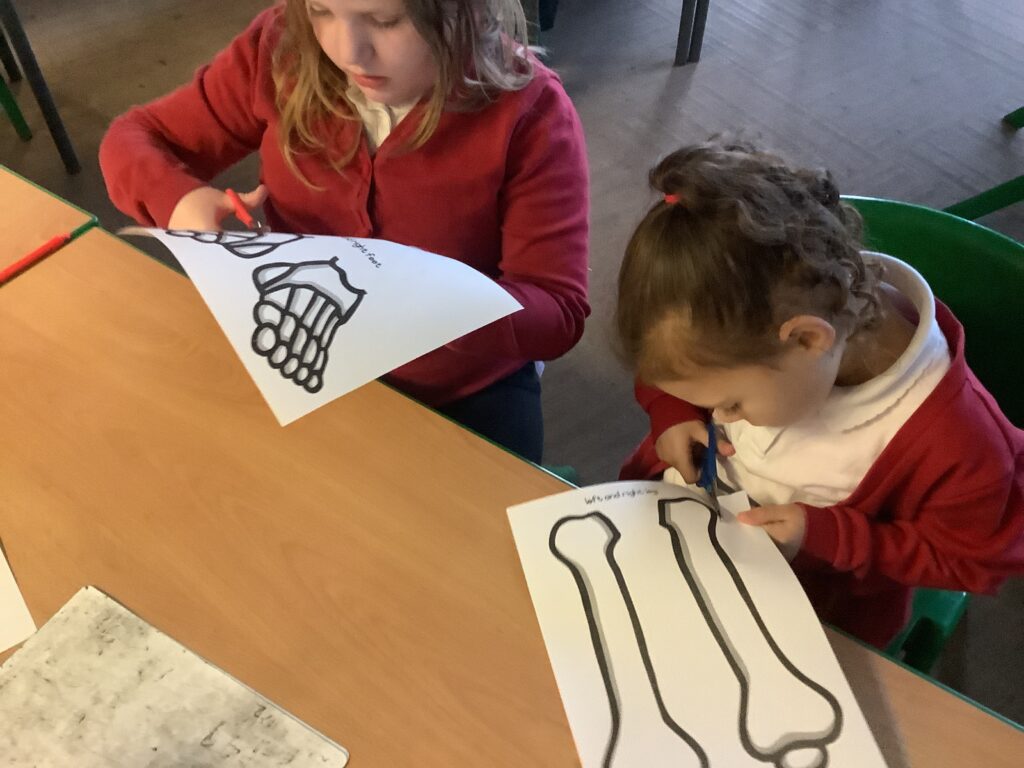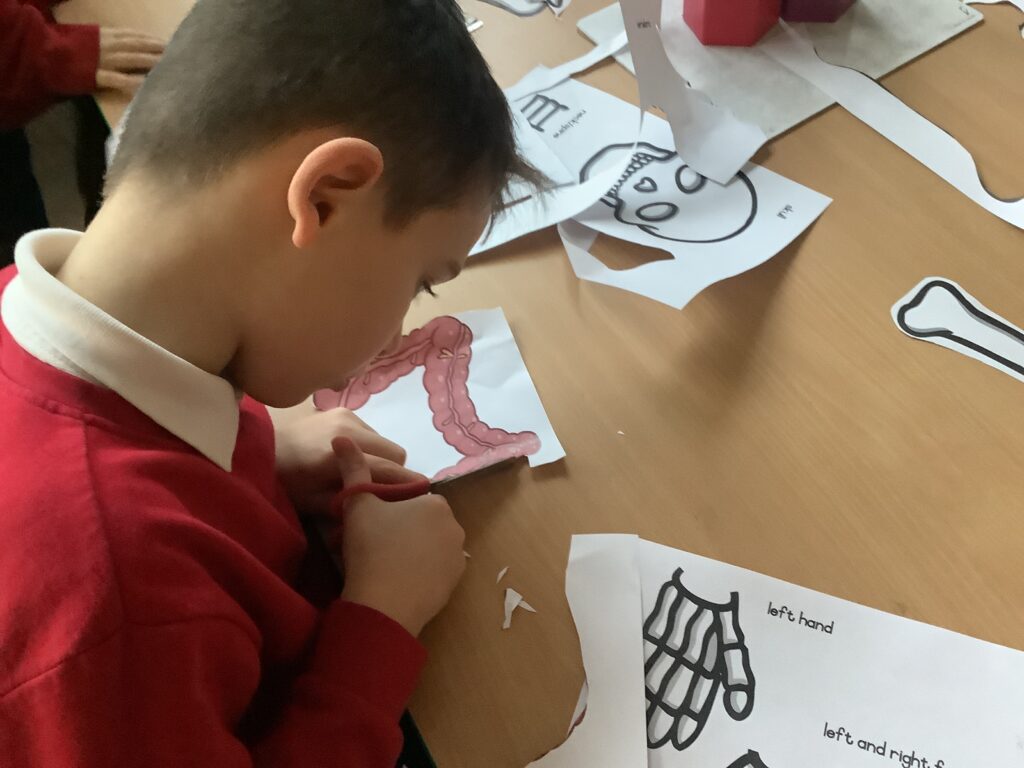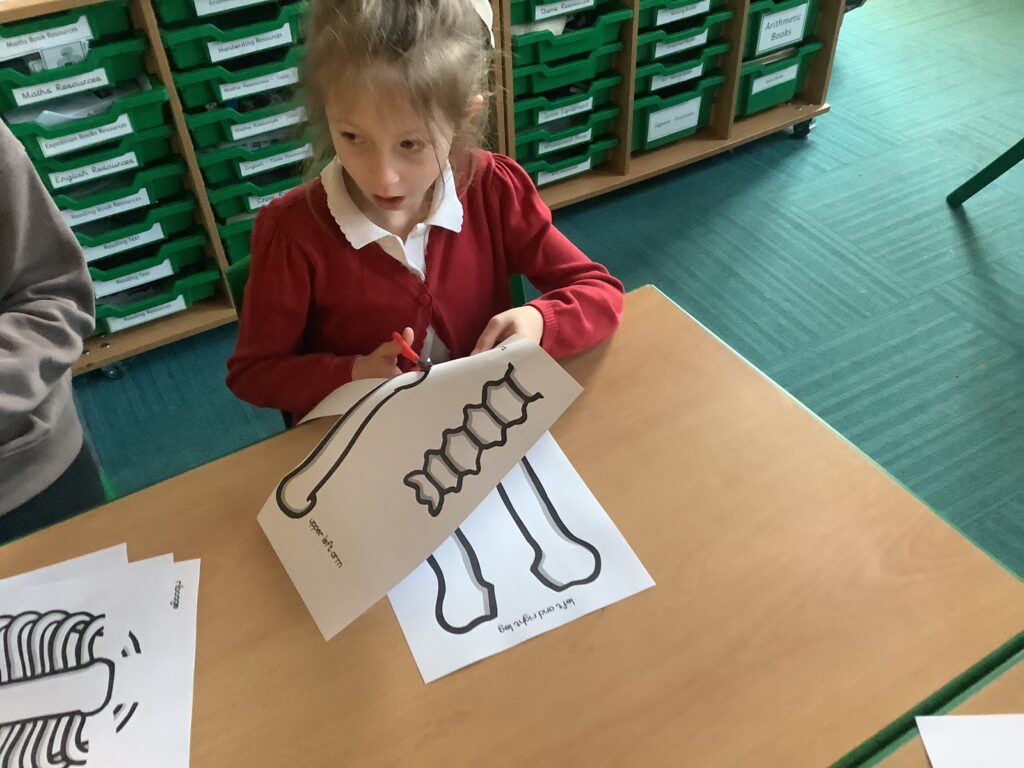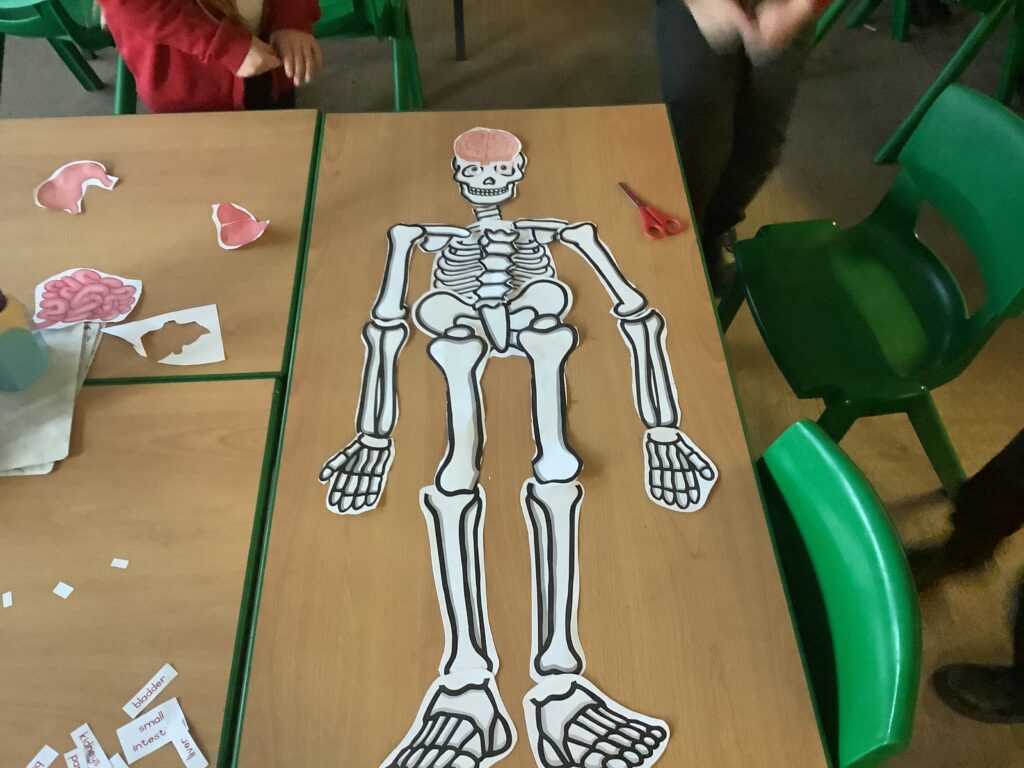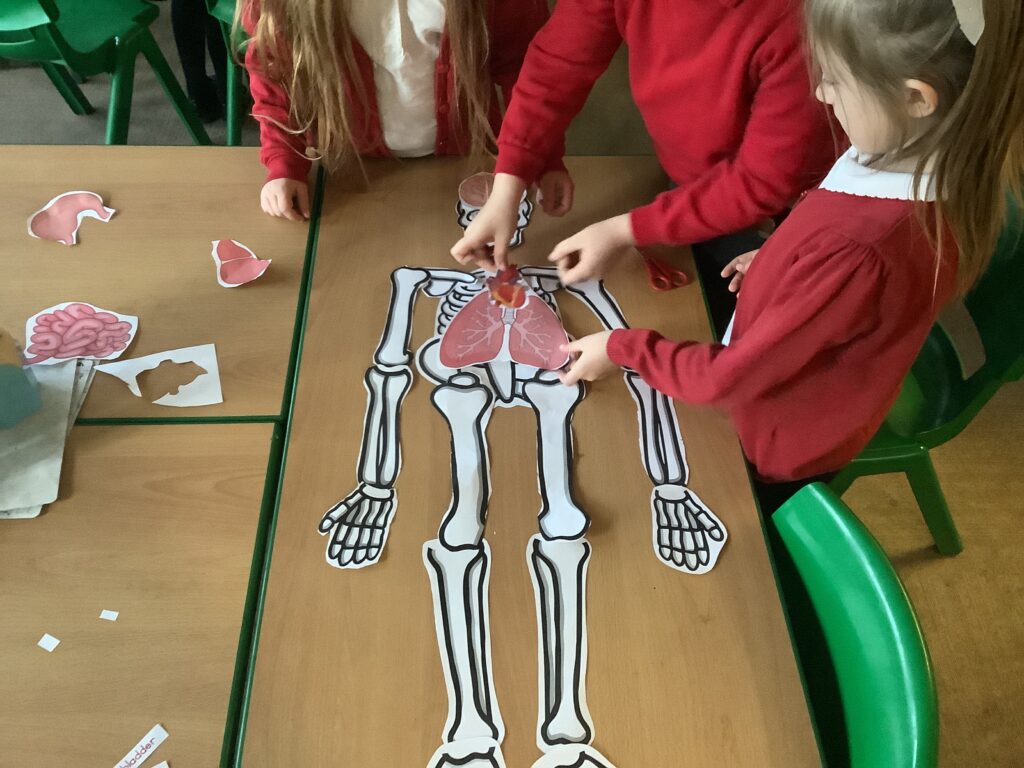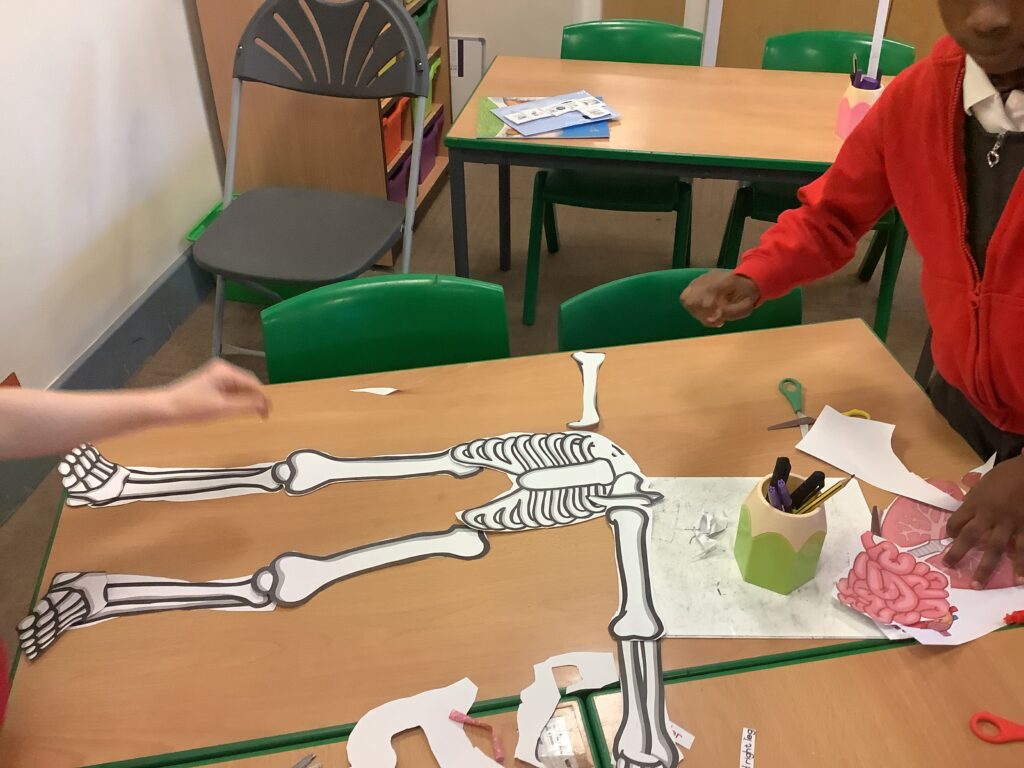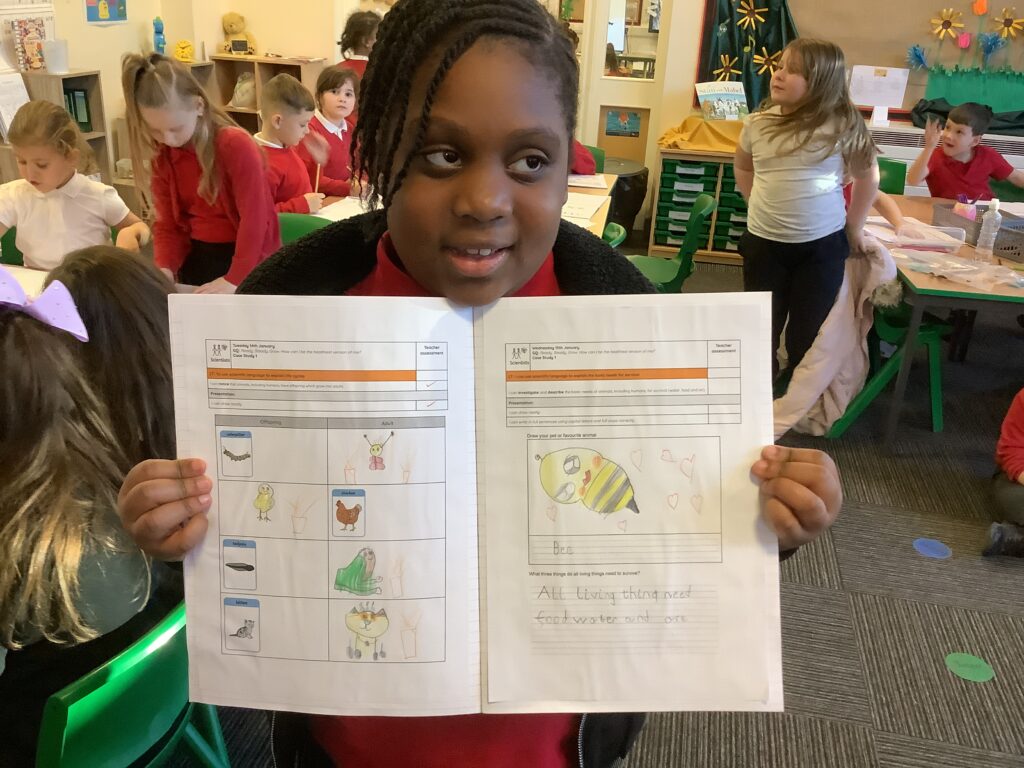
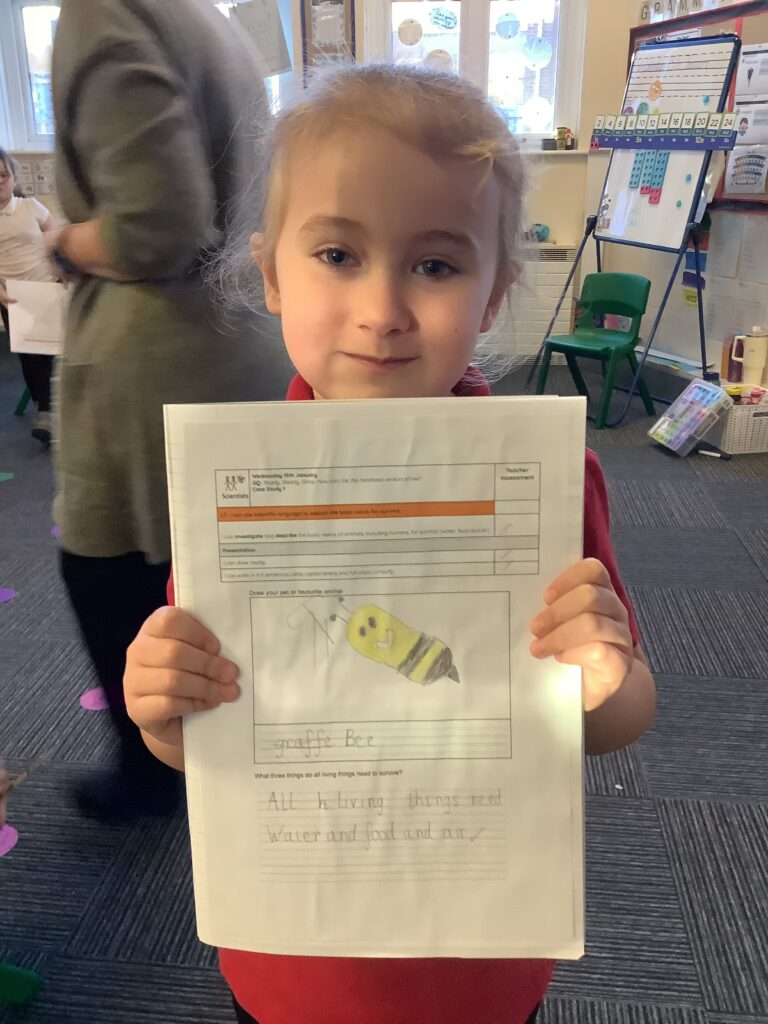
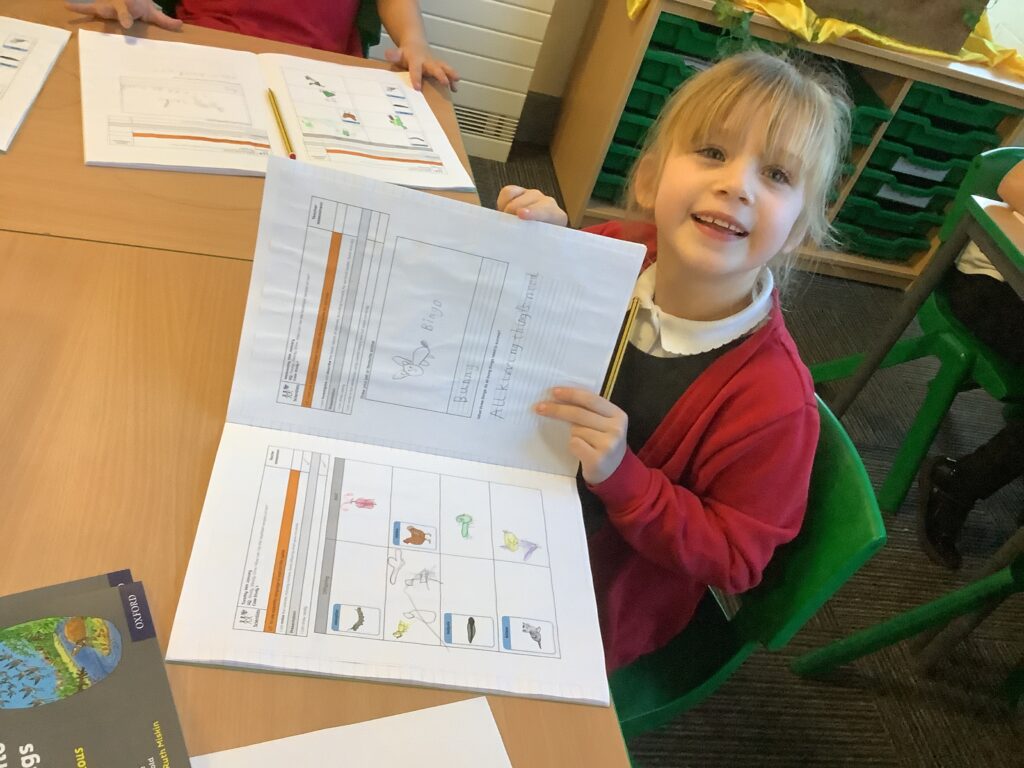
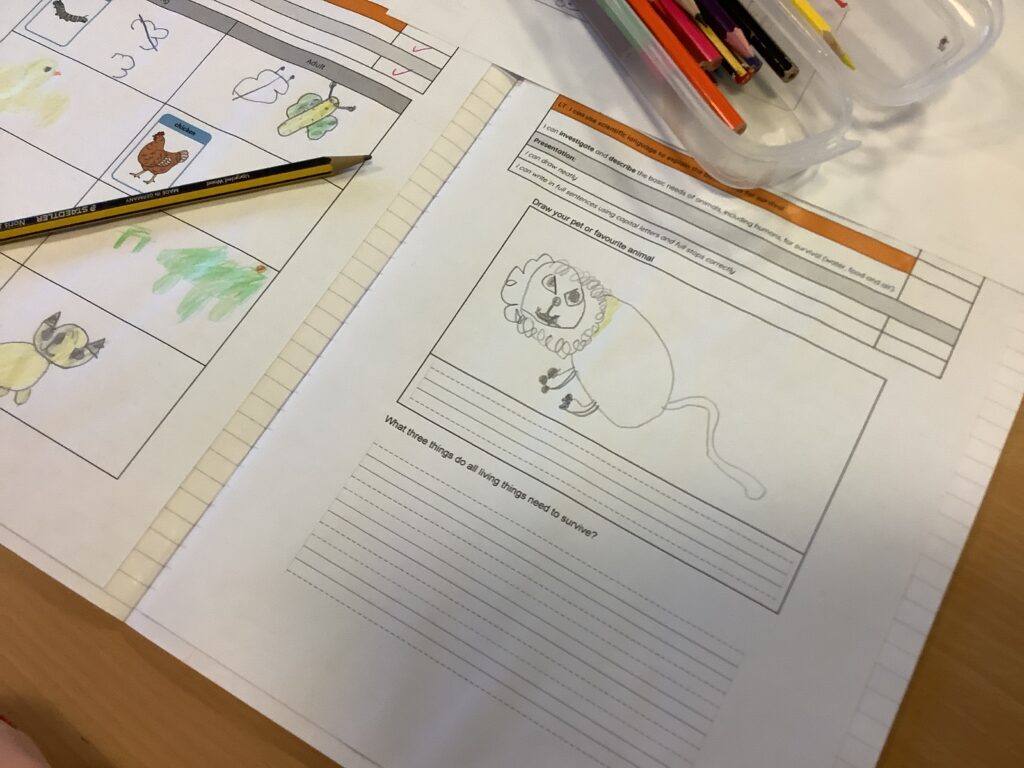
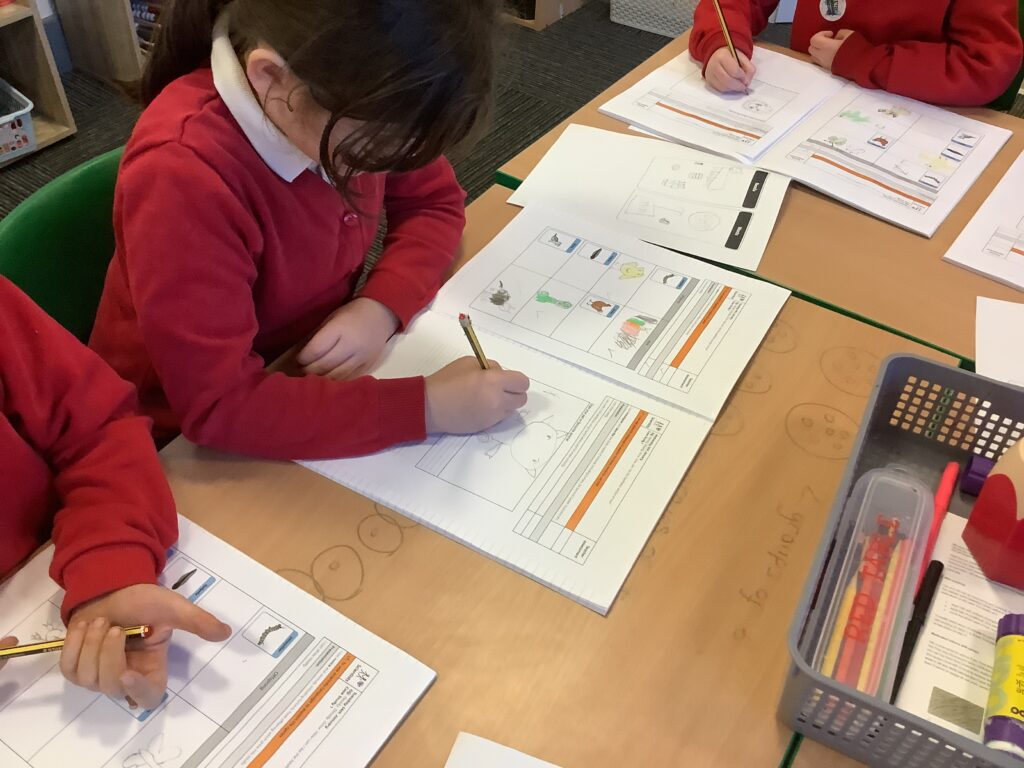
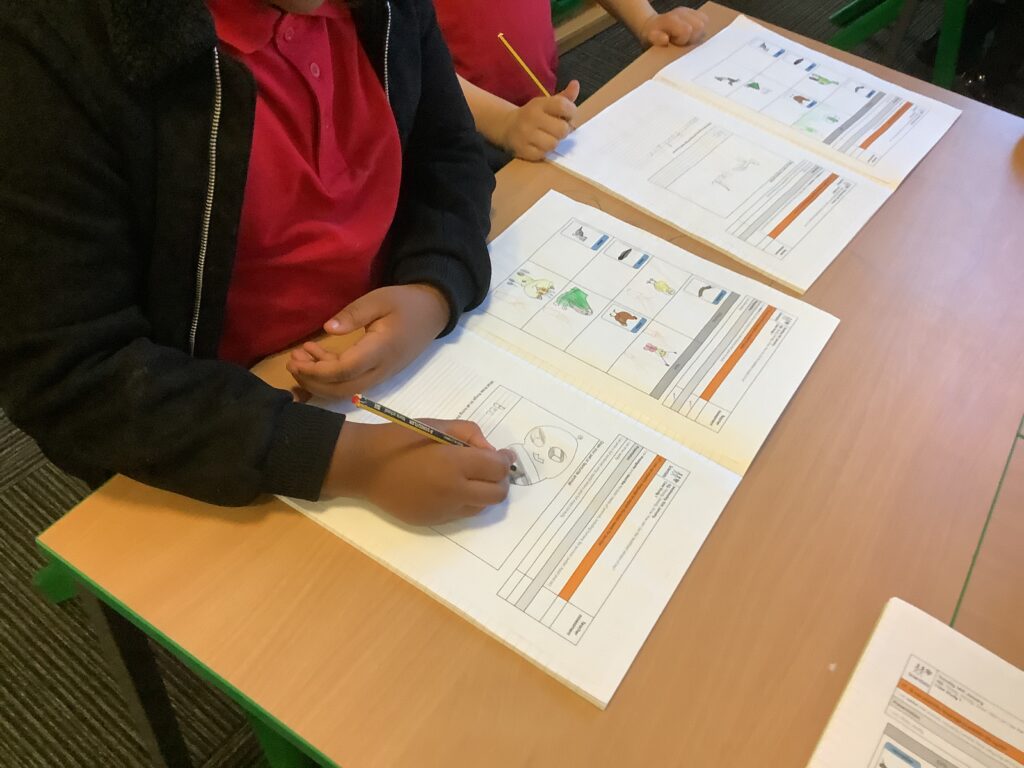
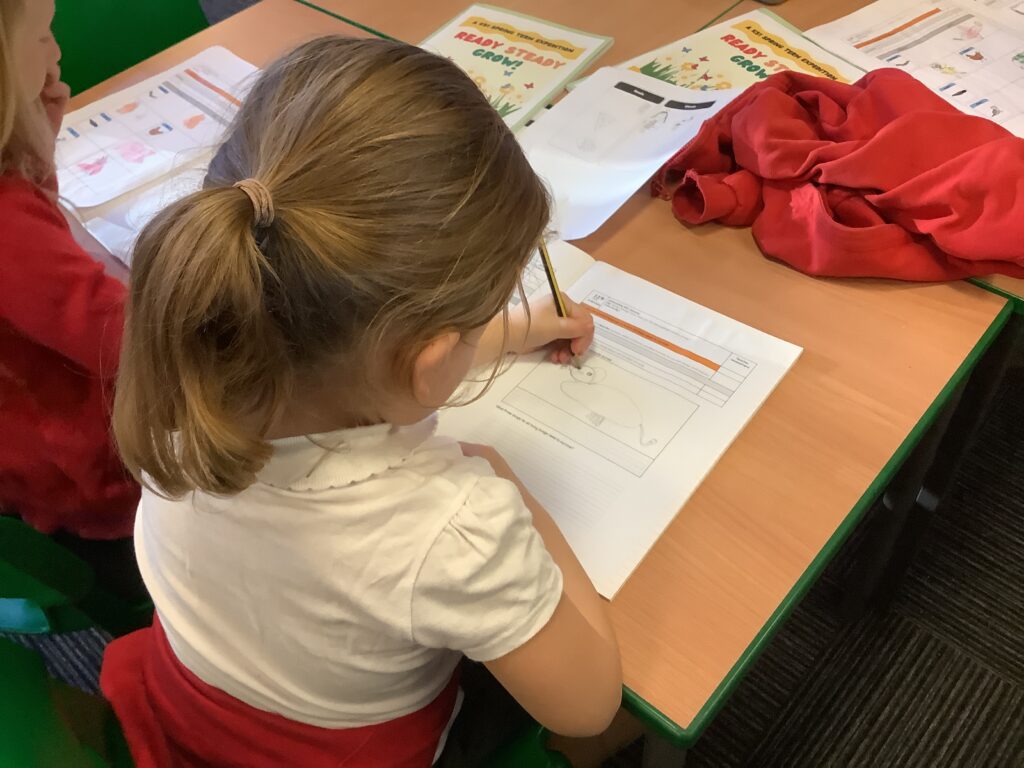
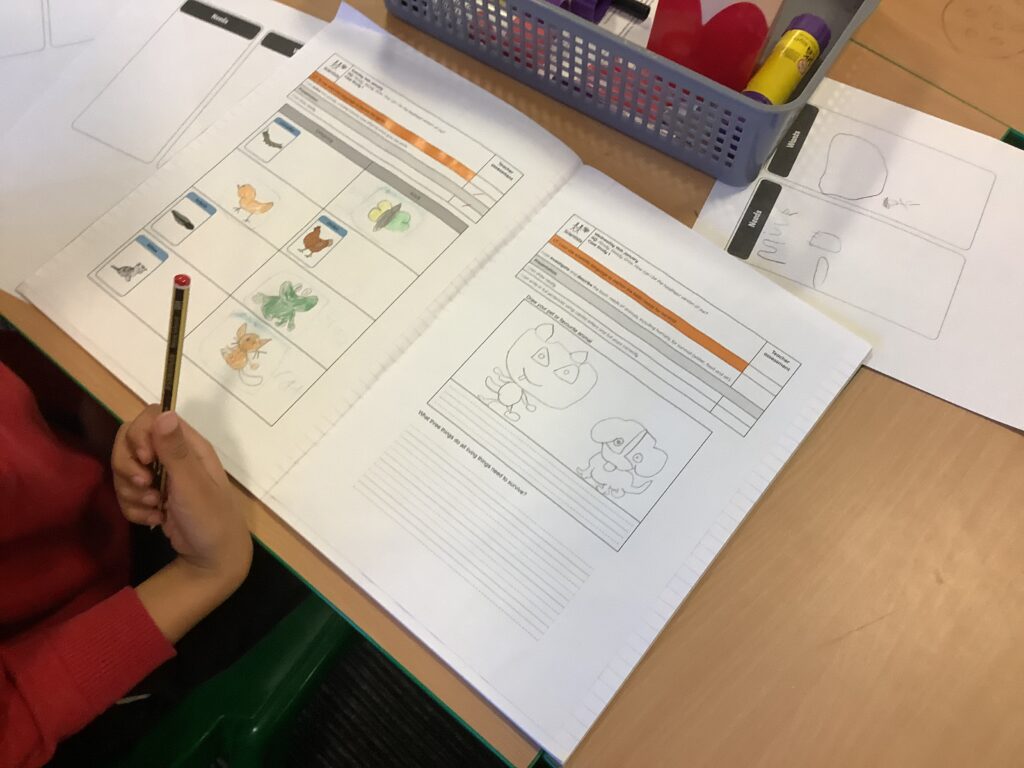
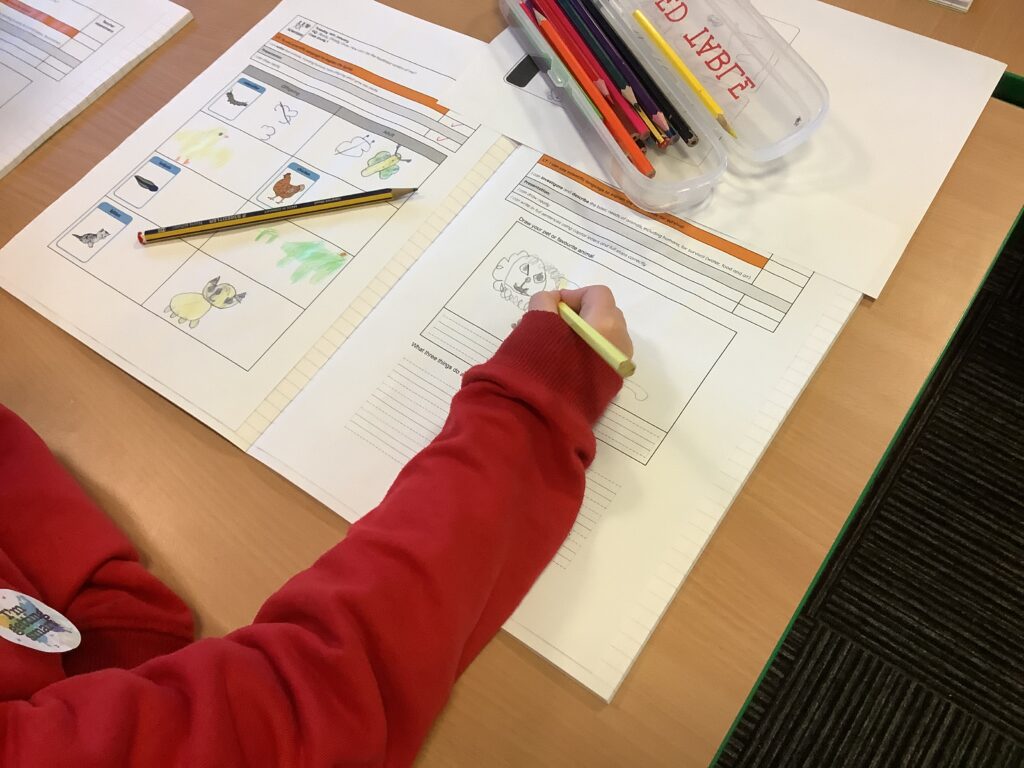
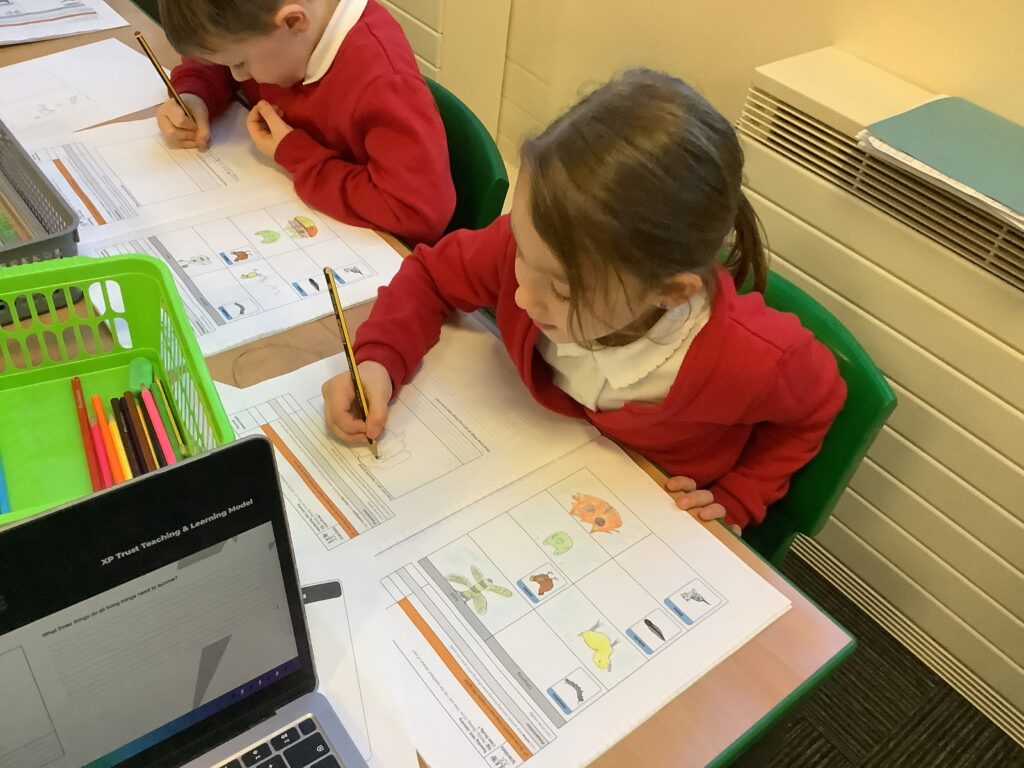
Today we were scientists again and discussed what humans and animals need to survive. The children knew they needed food and water to survive and we also discussed the importance of air.
They produced lots of beautiful work. Well done everyone!










Today we were scientists again and discussed what humans and animals need to survive. The children knew they needed food and water to survive and we also discussed the importance of air.
They produced lots of beautiful work. Well done everyone!
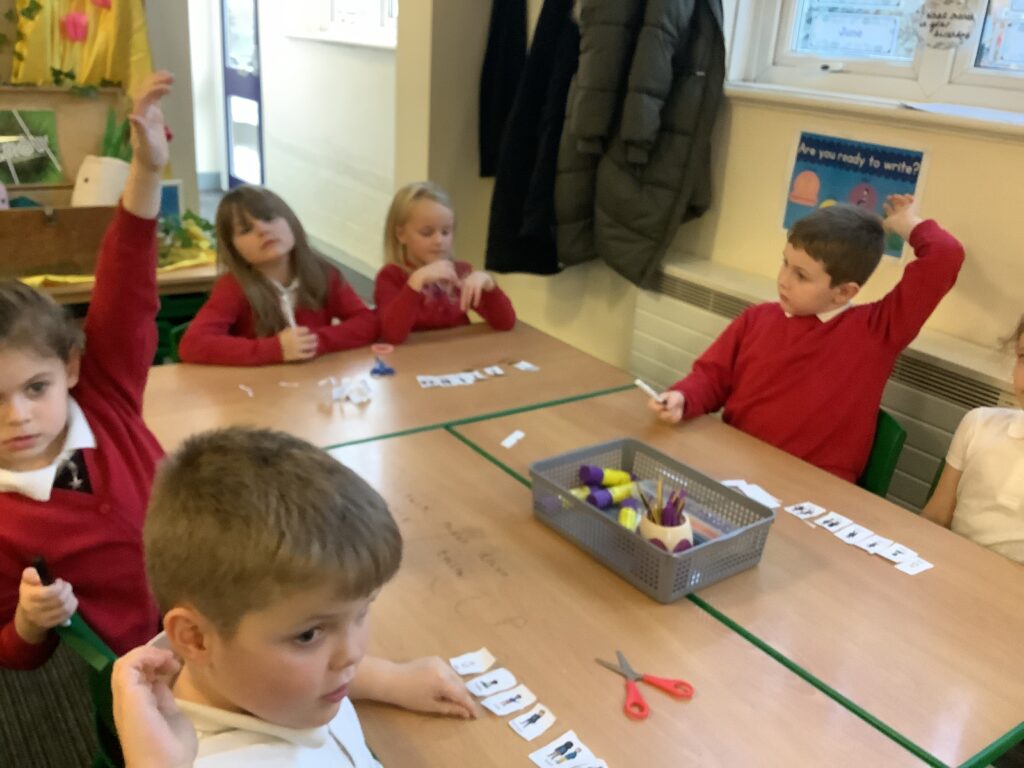
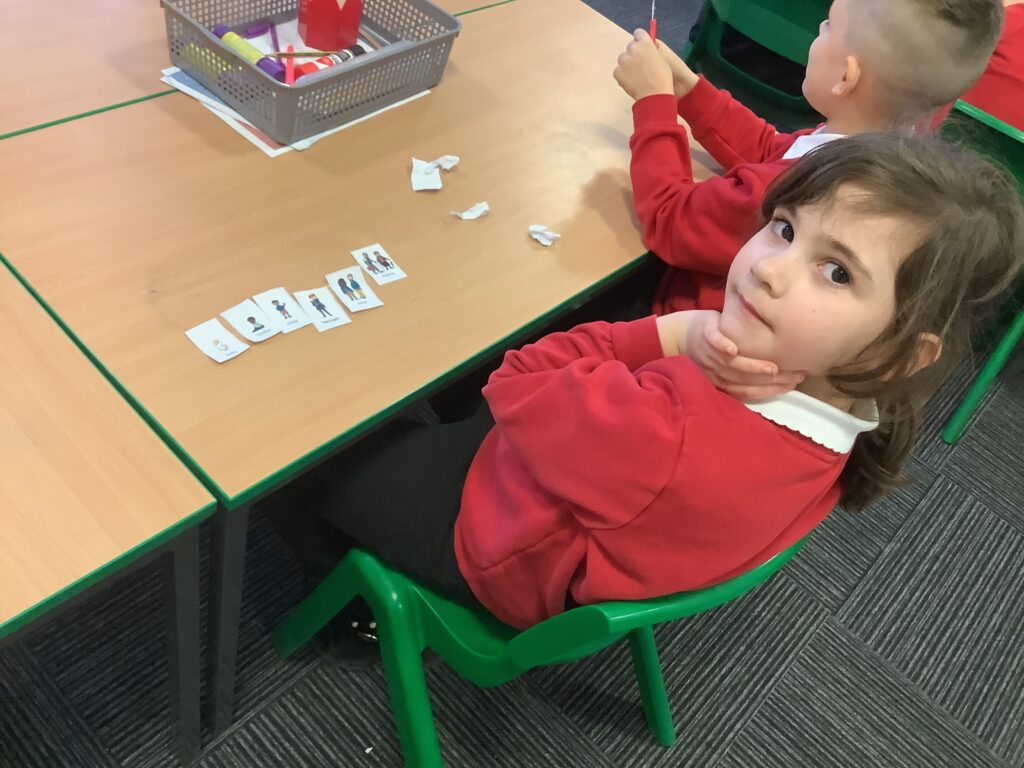
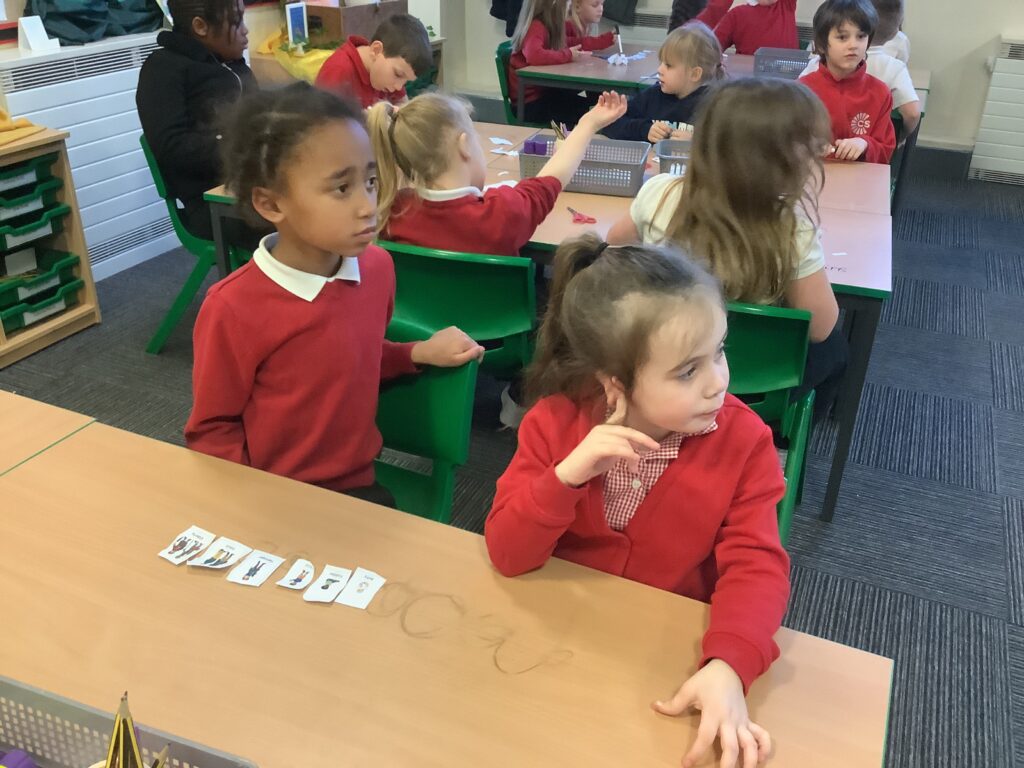
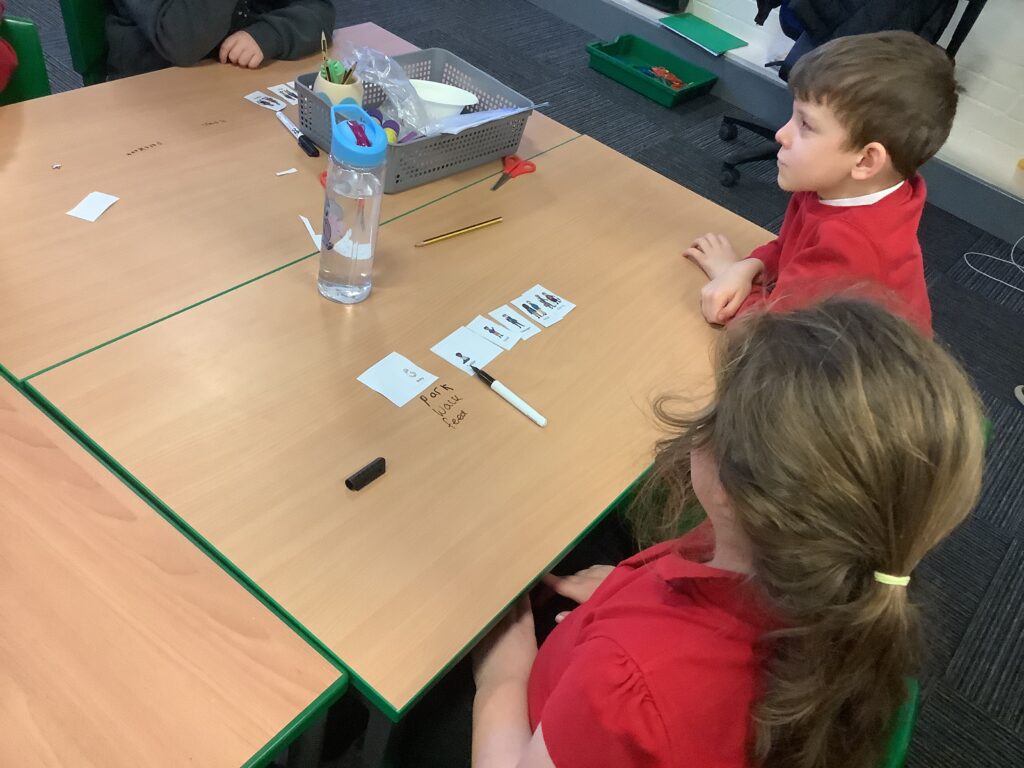
Today in our expedition lesson we have been scientists and investigating life cycles. We began by ordering the life cycle of a human and then thinking what skills an adult has that a baby doesn’t. We came up with lots of great ideas.
We then completed a matching activity where we linked different animals and their offspring. We noticed that some animals look like their parents but others look completely different.
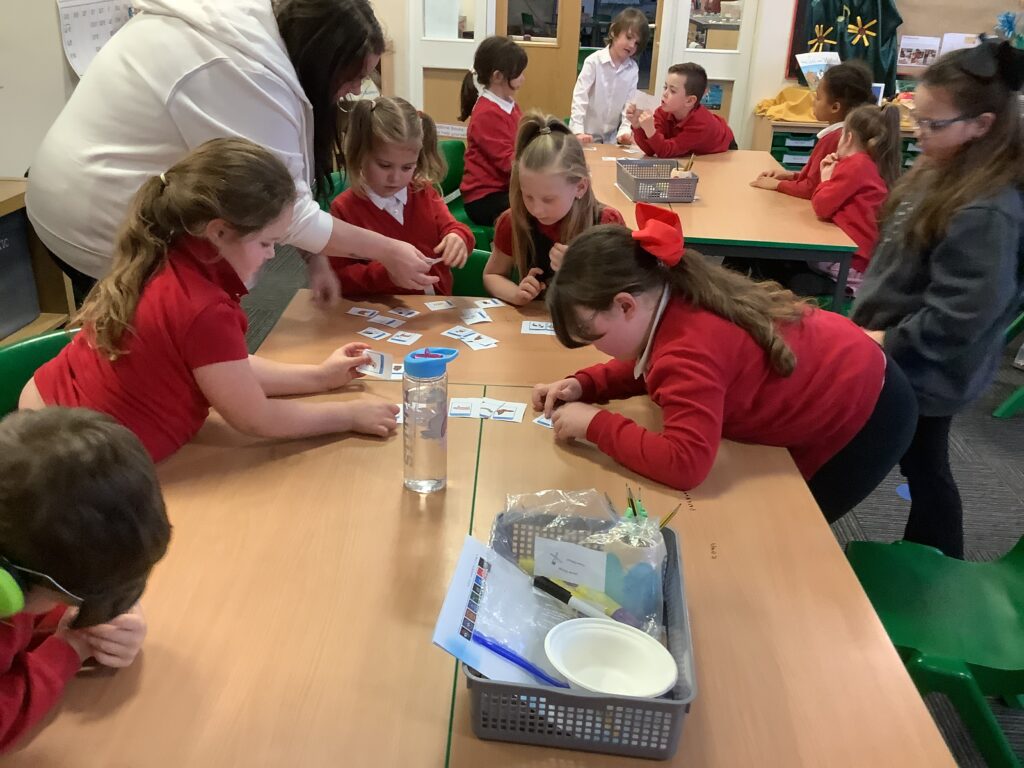
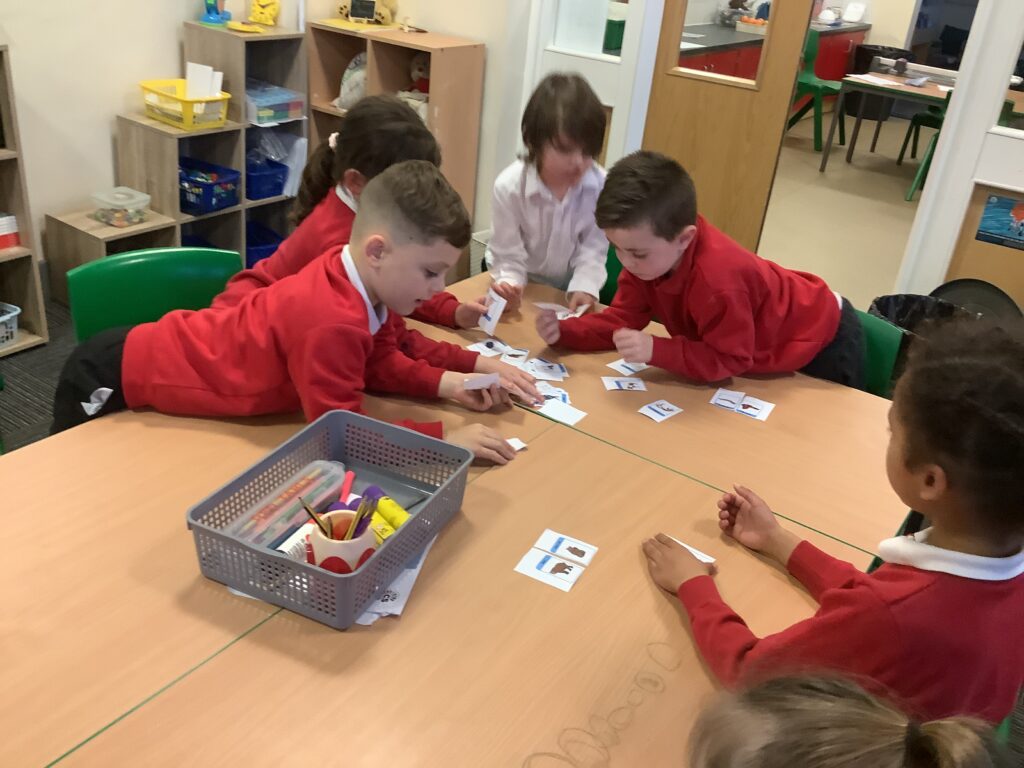
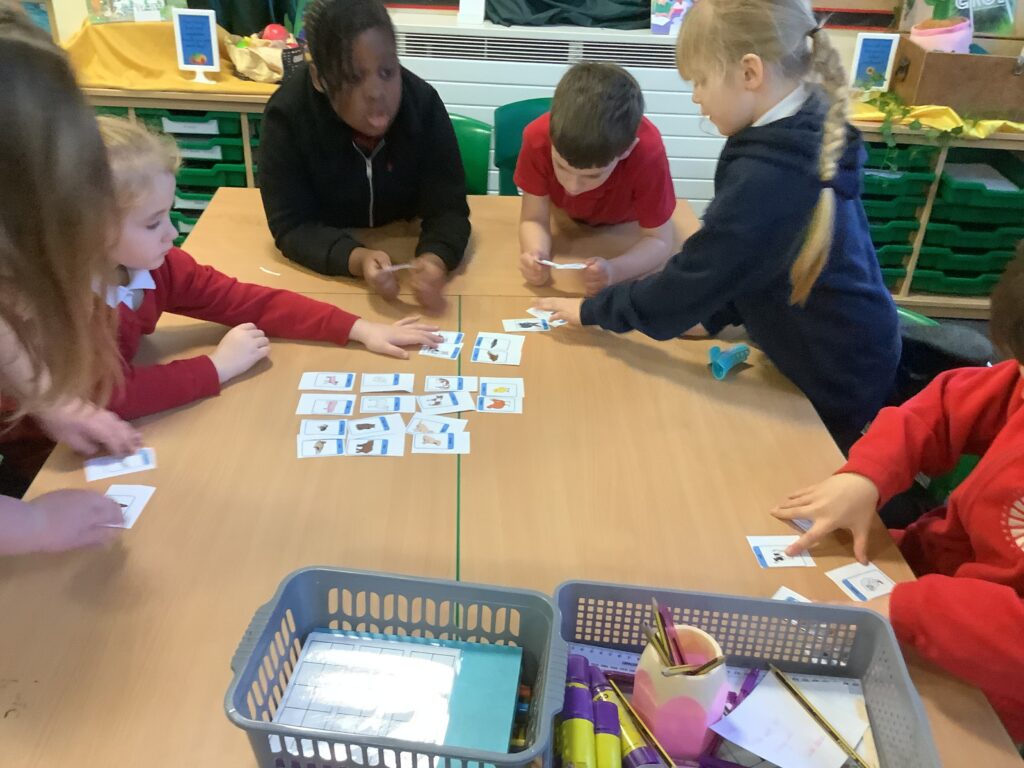
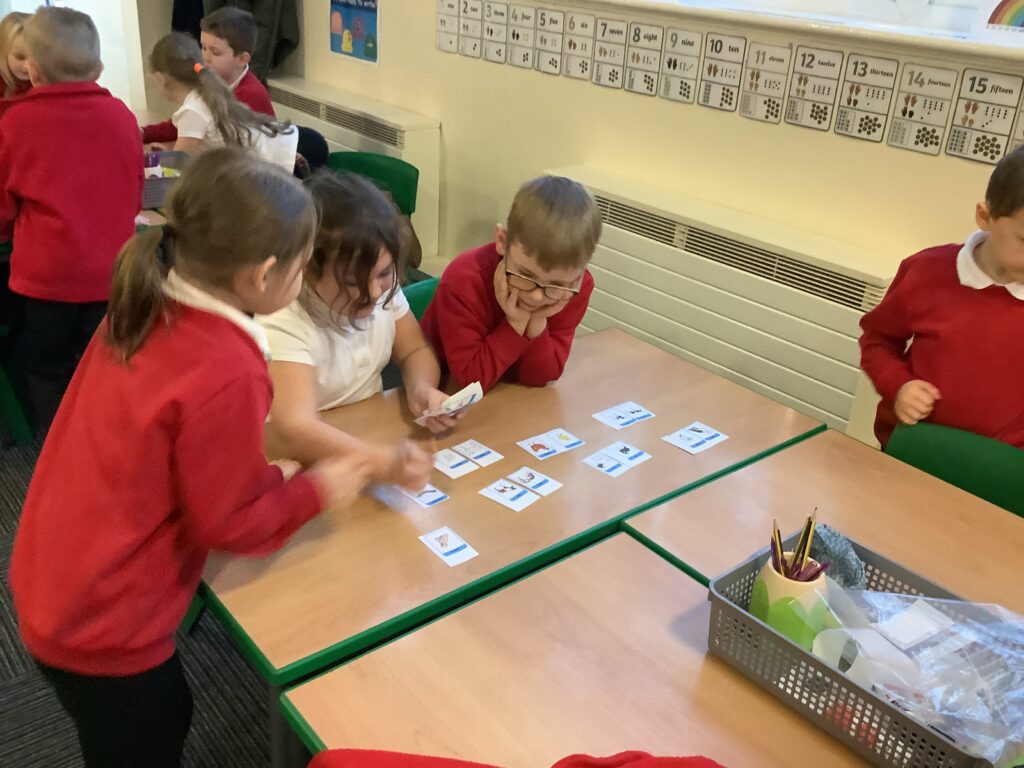
After studying the organs involved in digestion, we explored how each one plays a crucial role in breaking down food. We followed the journey food takes through the digestive system and examined what happens at each stage. To deepen our understanding, we conducted an experiment demonstrating the digestion process. Although it got a bit messy, it was an enjoyable and insightful experience!
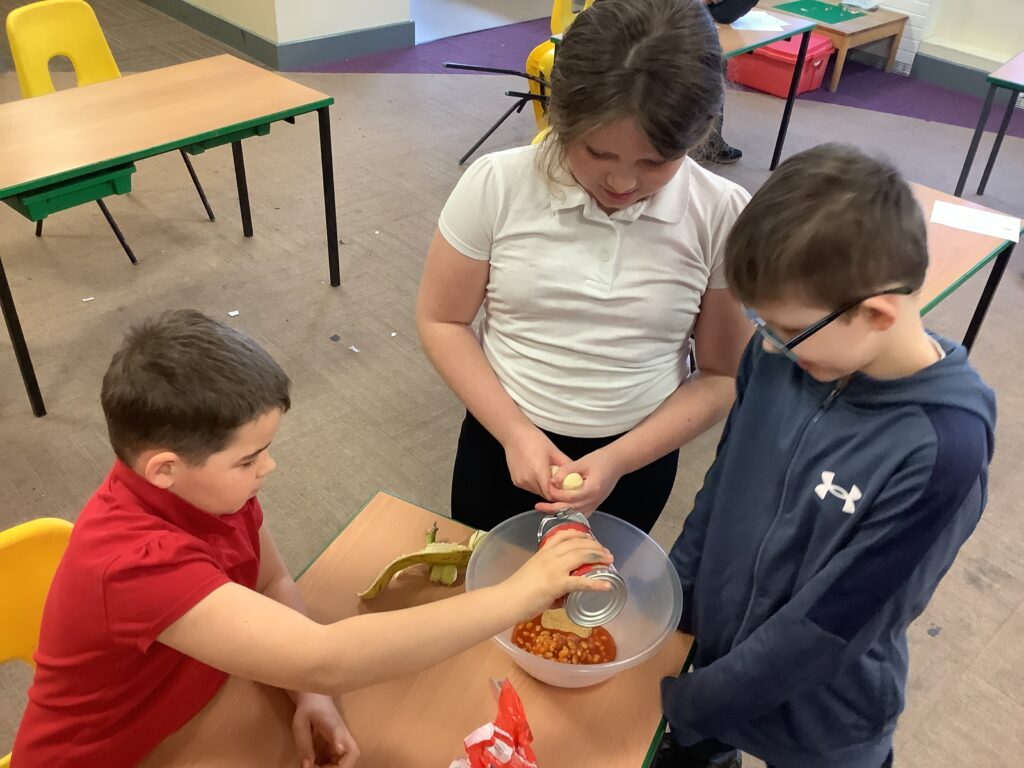
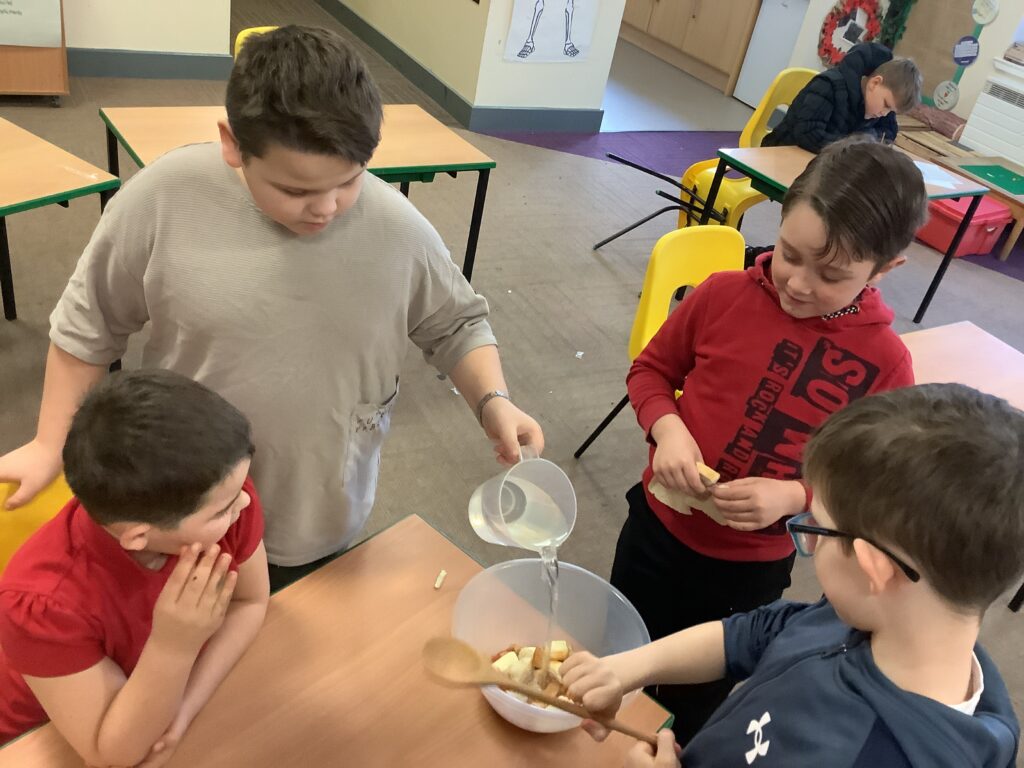
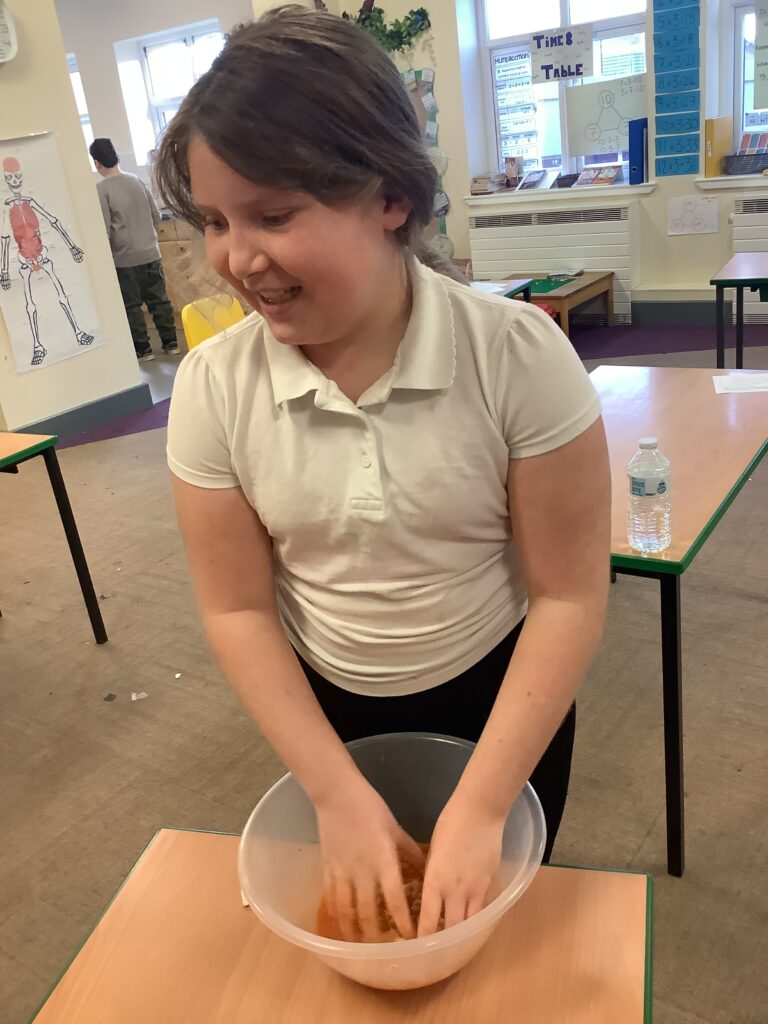
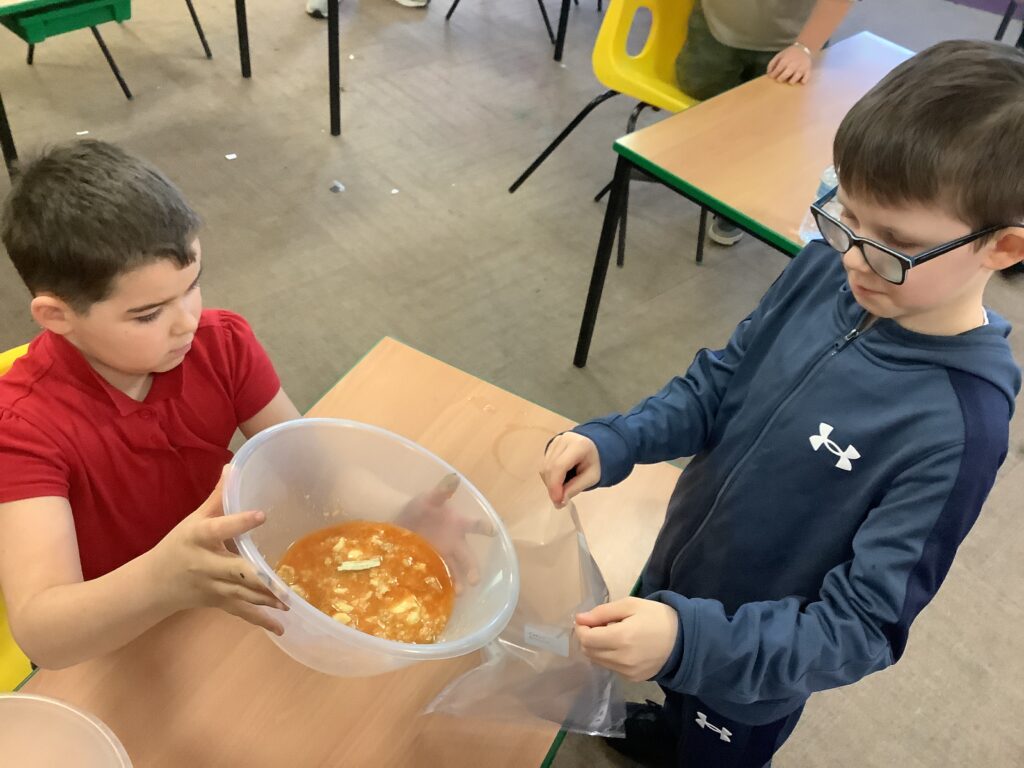
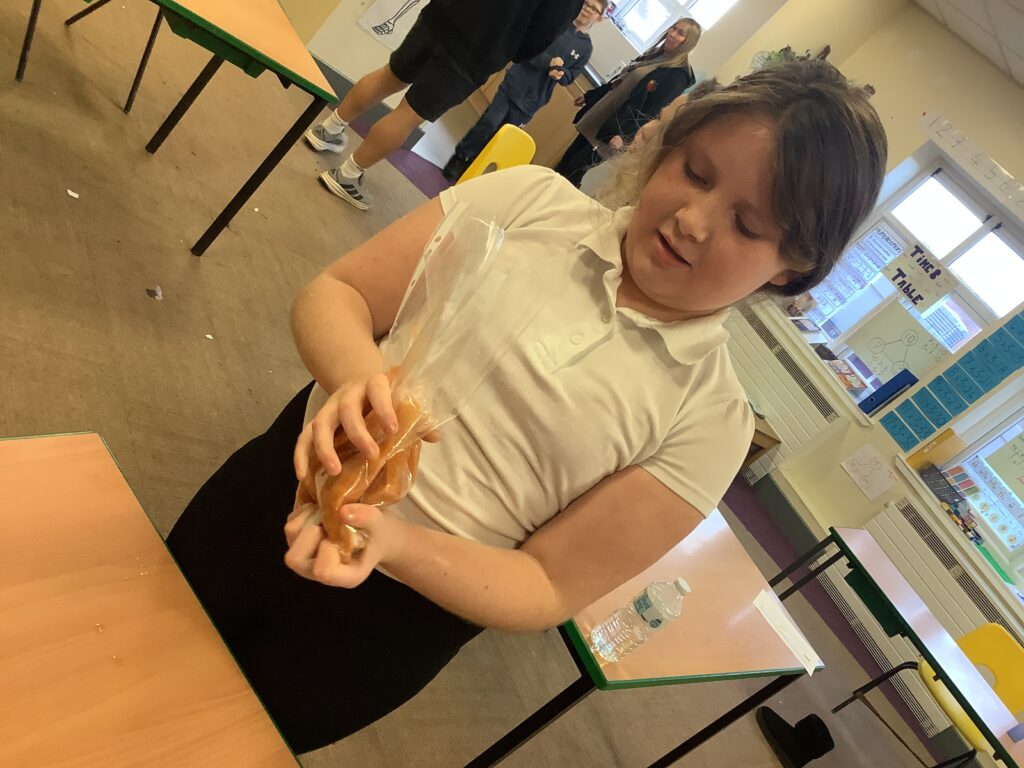
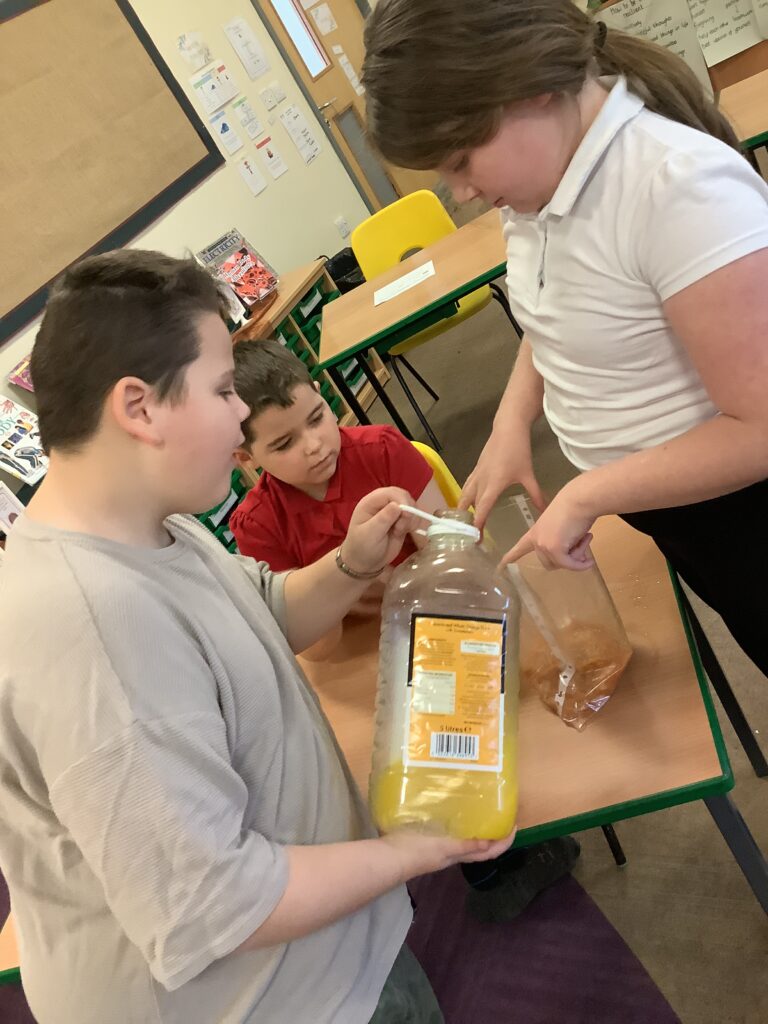
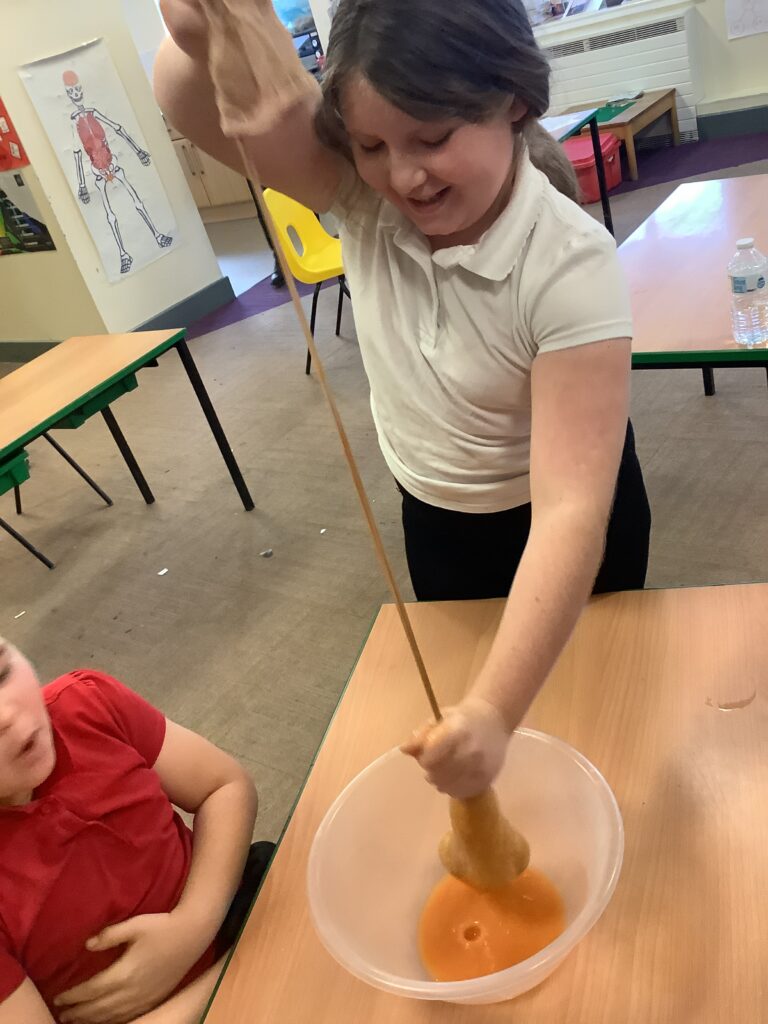
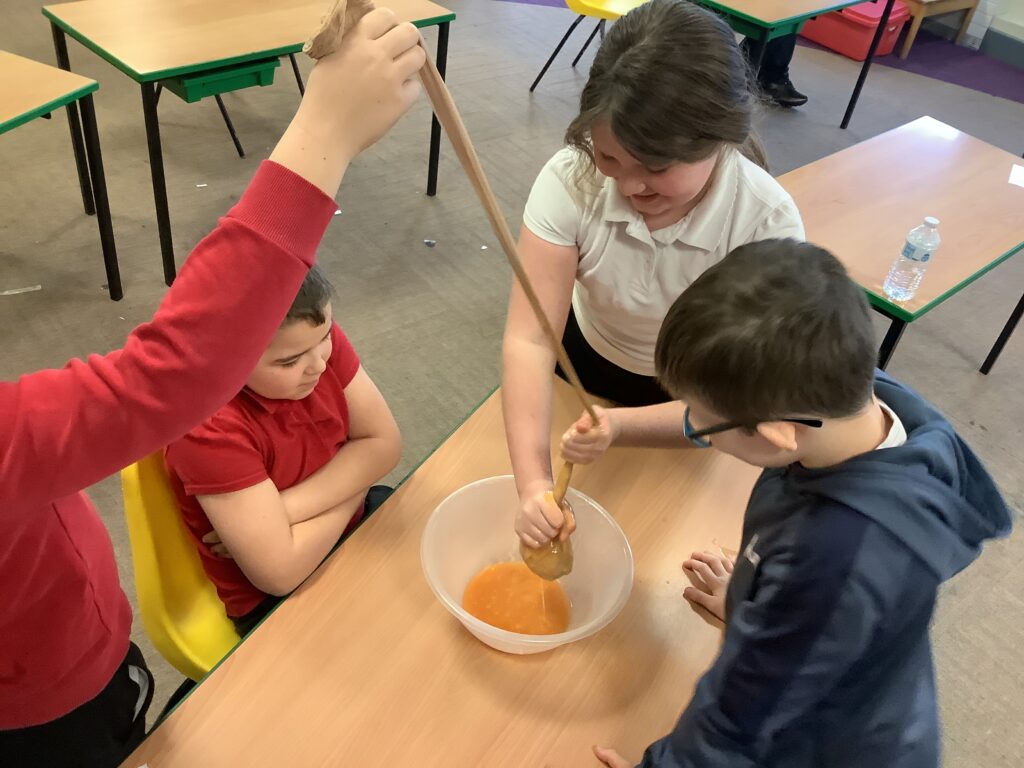
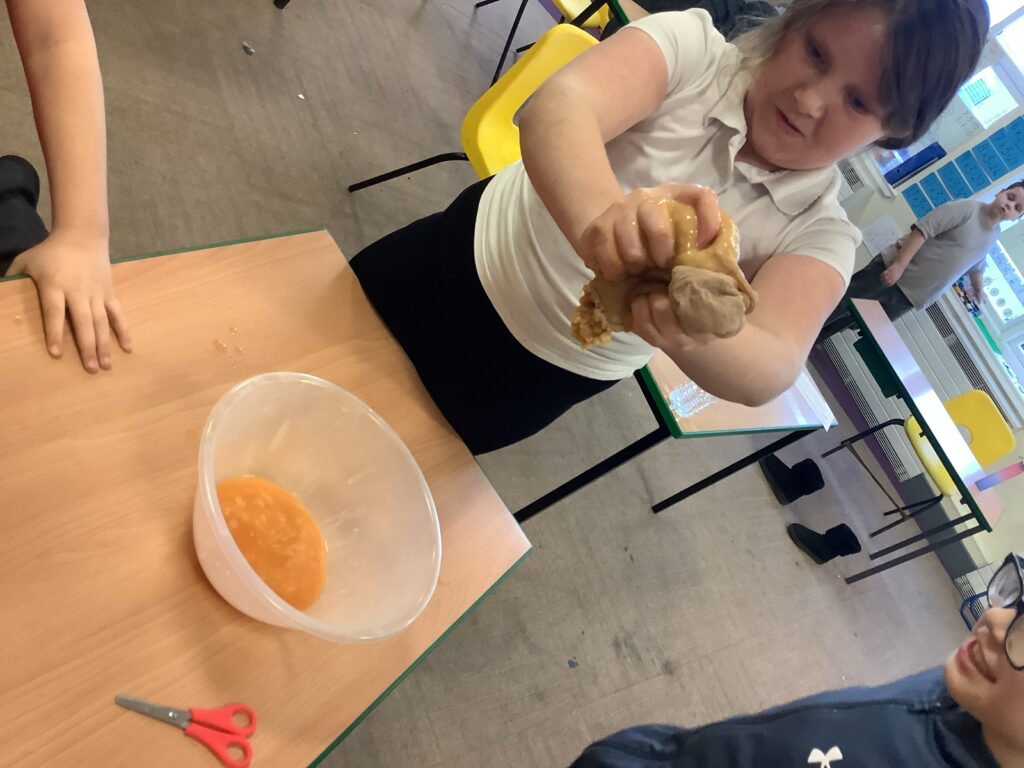
Before diving into the digestive system, we started by constructing a human body. The children cut out bones and organs, then placed them where they thought they belonged. While we were quite successful in arranging the bones, we needed a bit more guidance when it came to positioning the organs. From there, we focused on identifying the specific organs involved in digesting food.
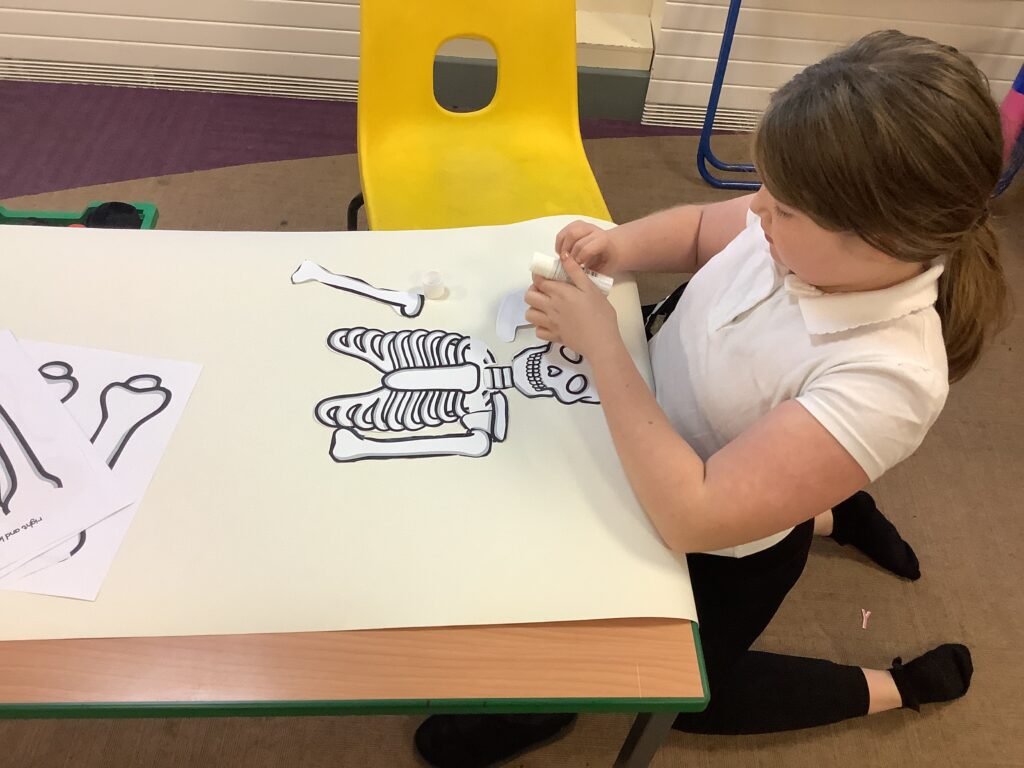
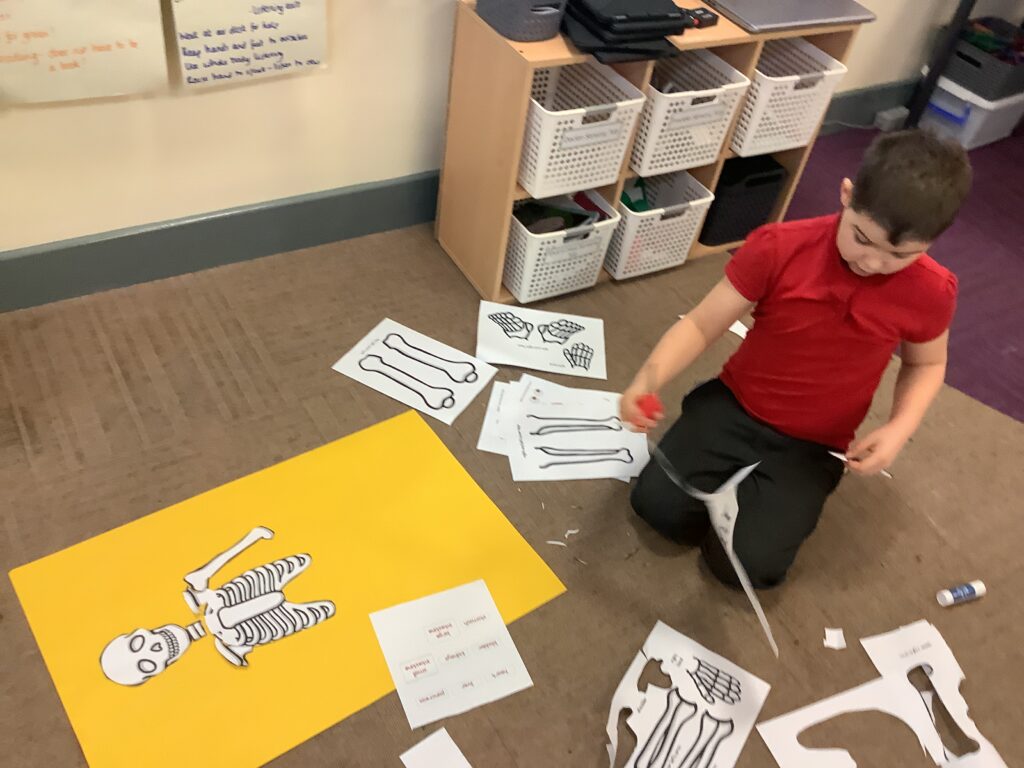
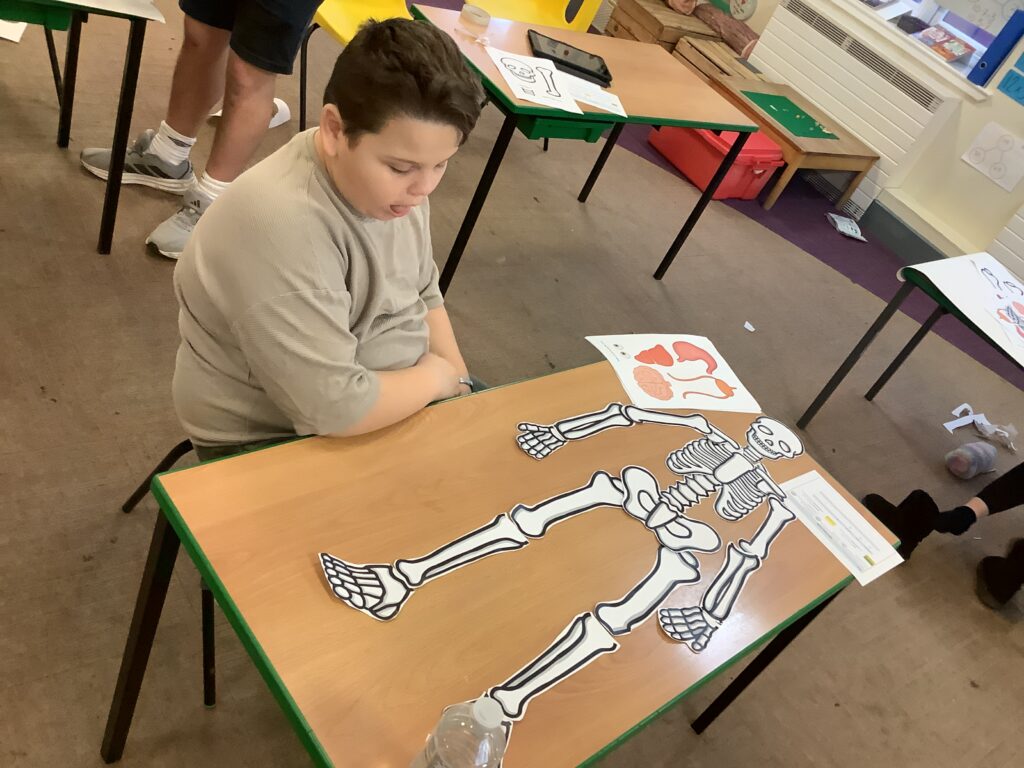
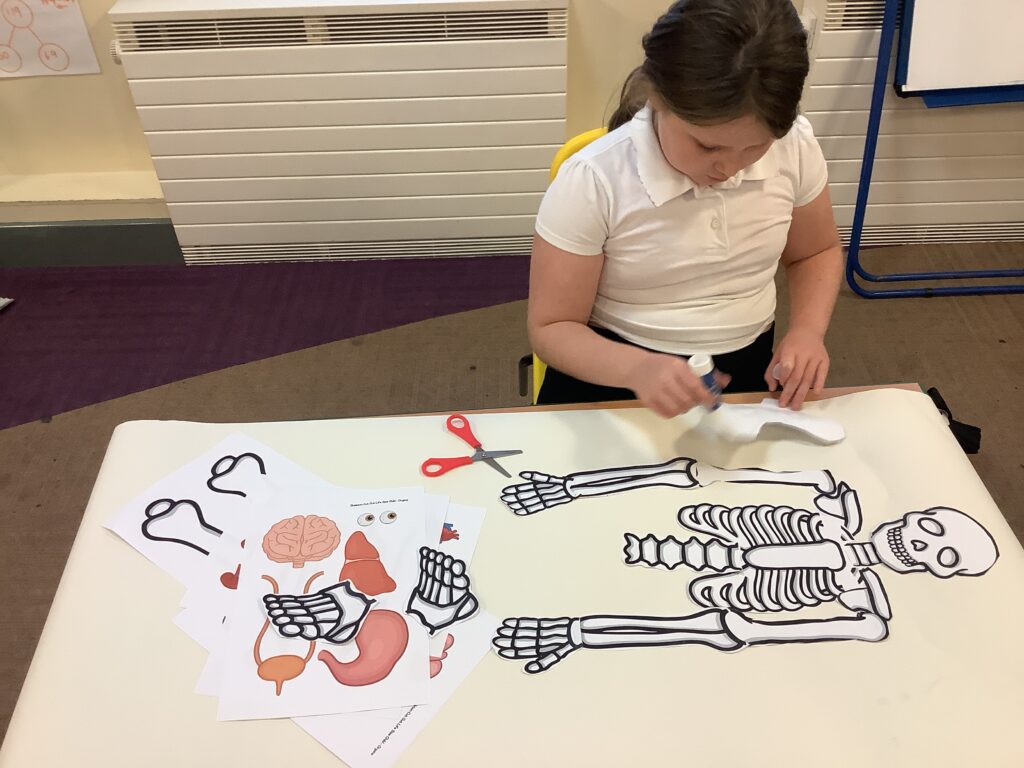
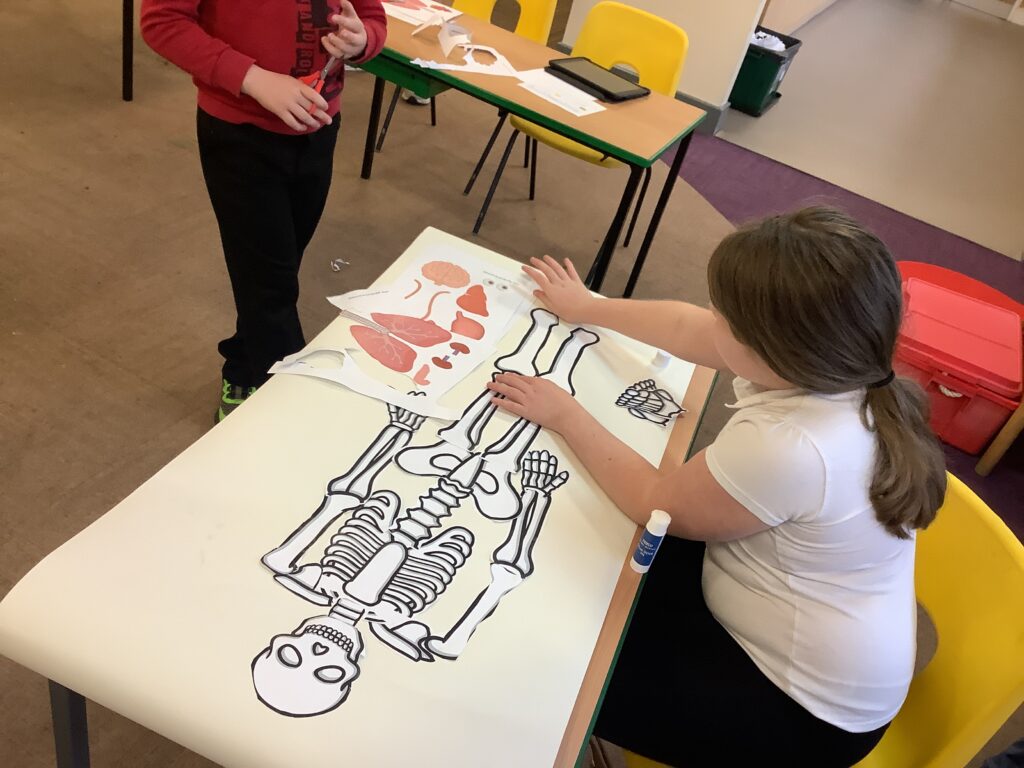
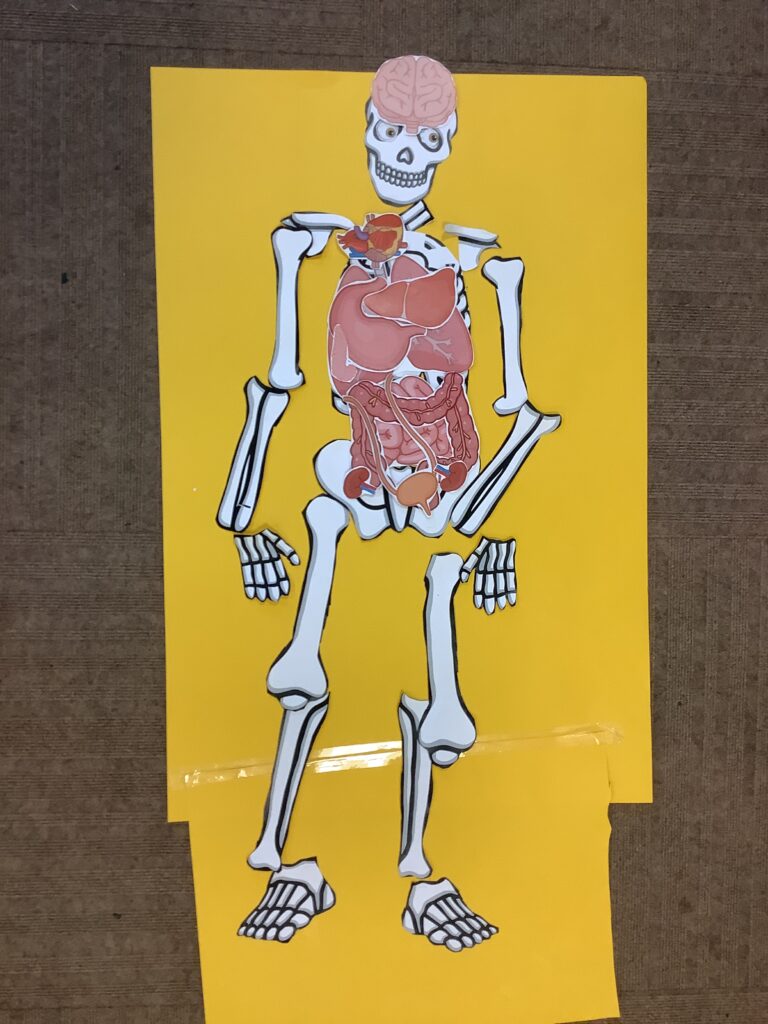
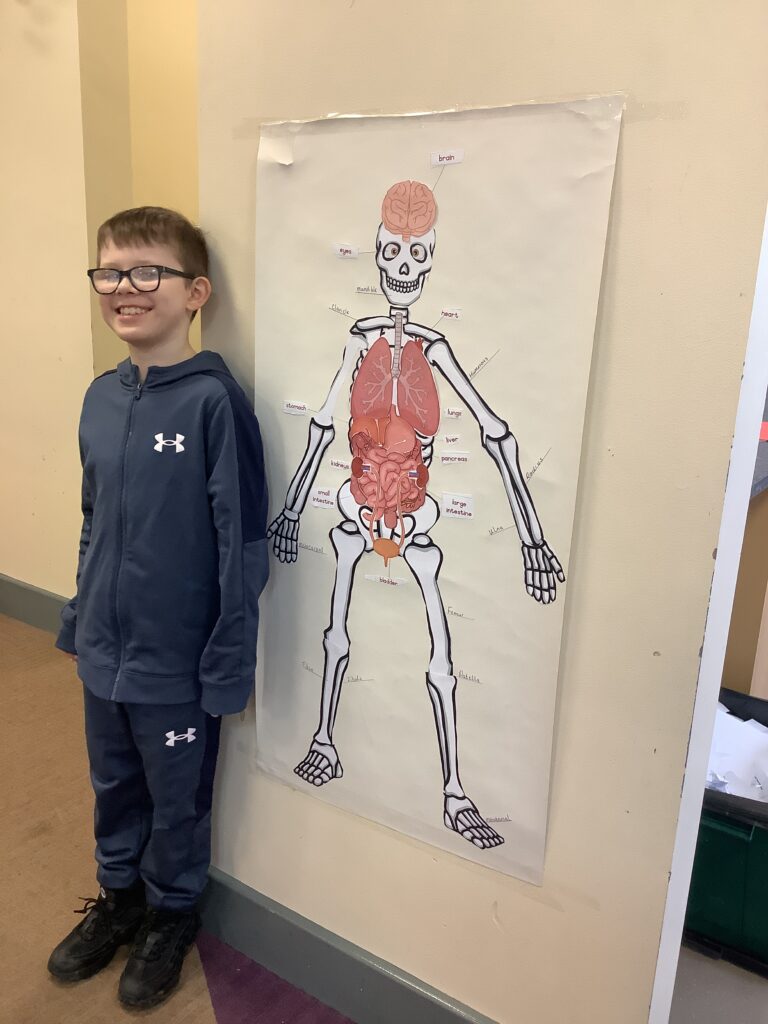
We are doing lots of reading fluency in our reading lessons. We are continuing to work on our words per minute where we use timers daily to practise. We then answer 3 questions based on gaps from our Autumn assessments and daily written comprehension. We are already showing improvements.
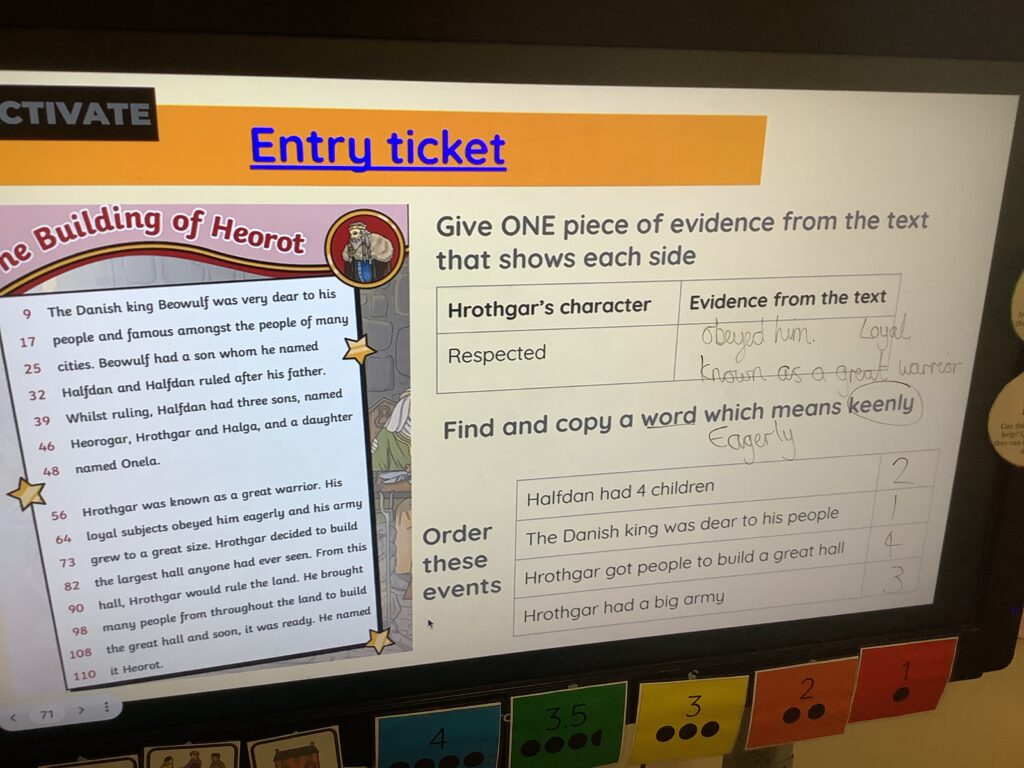
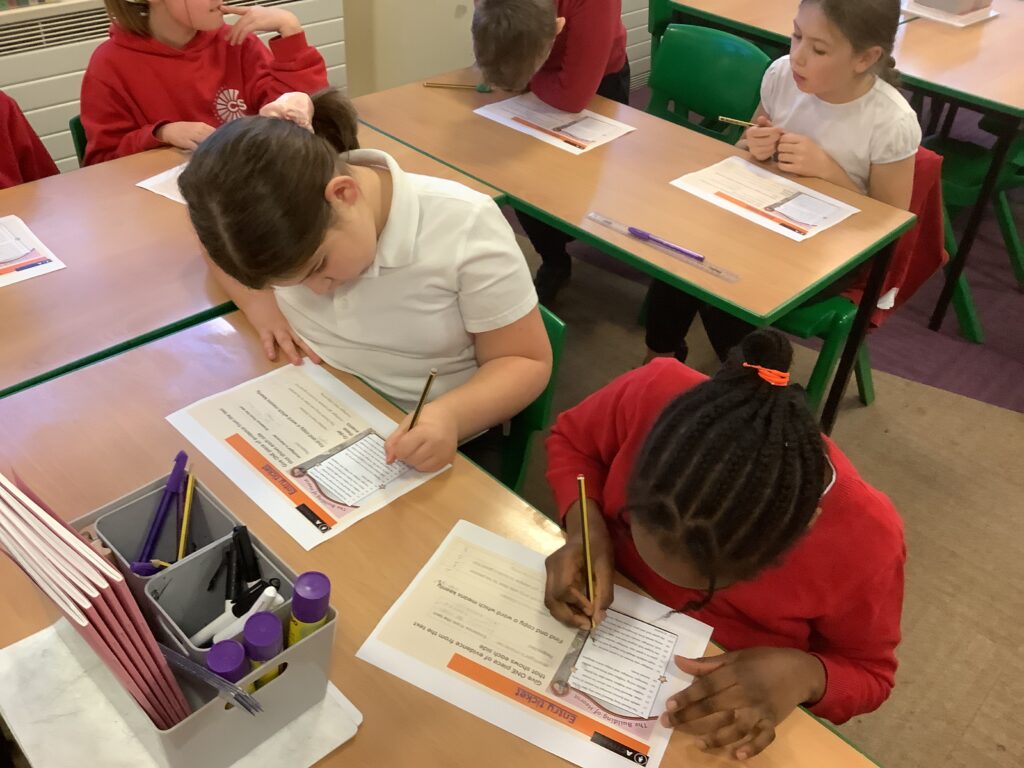
As we have been looking at the number 1 in maths, we thought it would be fun to count to 1 and use these skills to create flapjacks!
We had to count out 1 heaped tablespoon of oats, 1 tablespoon of honey, and 1 teaspoon of butter. We mixed all the ingredients together and added to a bun case ready for Miss McGlone to put in the oven. We took them home to eat but they smelt delicious!
So the weather was really bad in our forest area so we were unable to in there but it didn’t stop us from doing what we normal do in there. We made our very own turtles, using wool, lollipop sticks and felt tip pens.
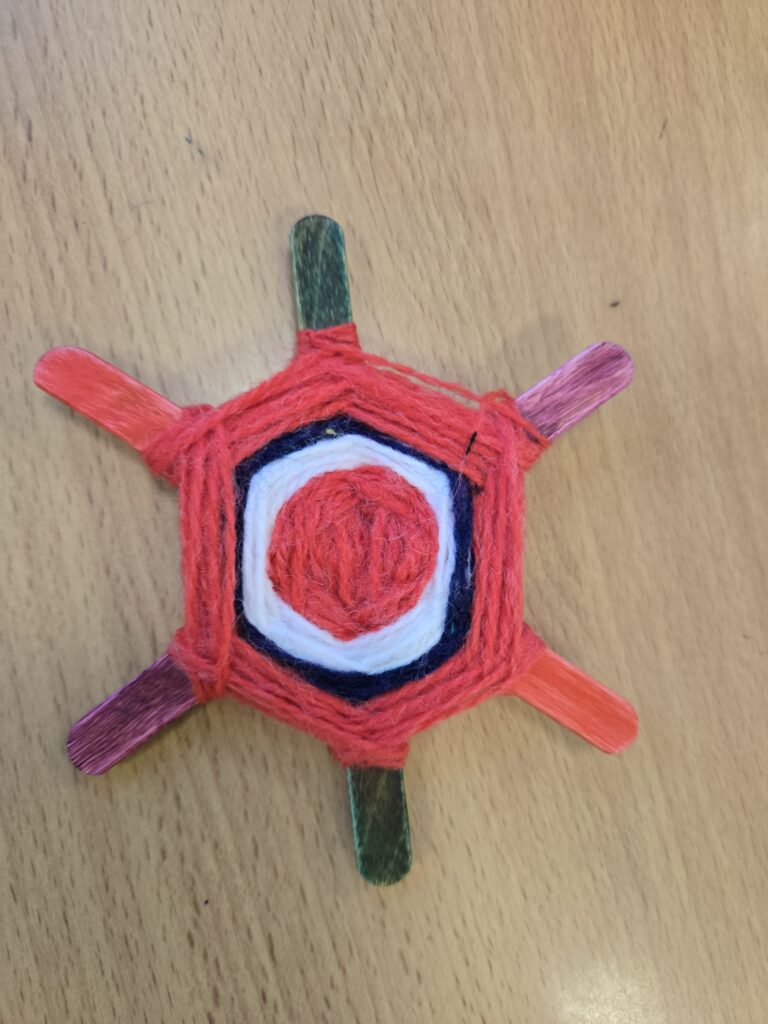
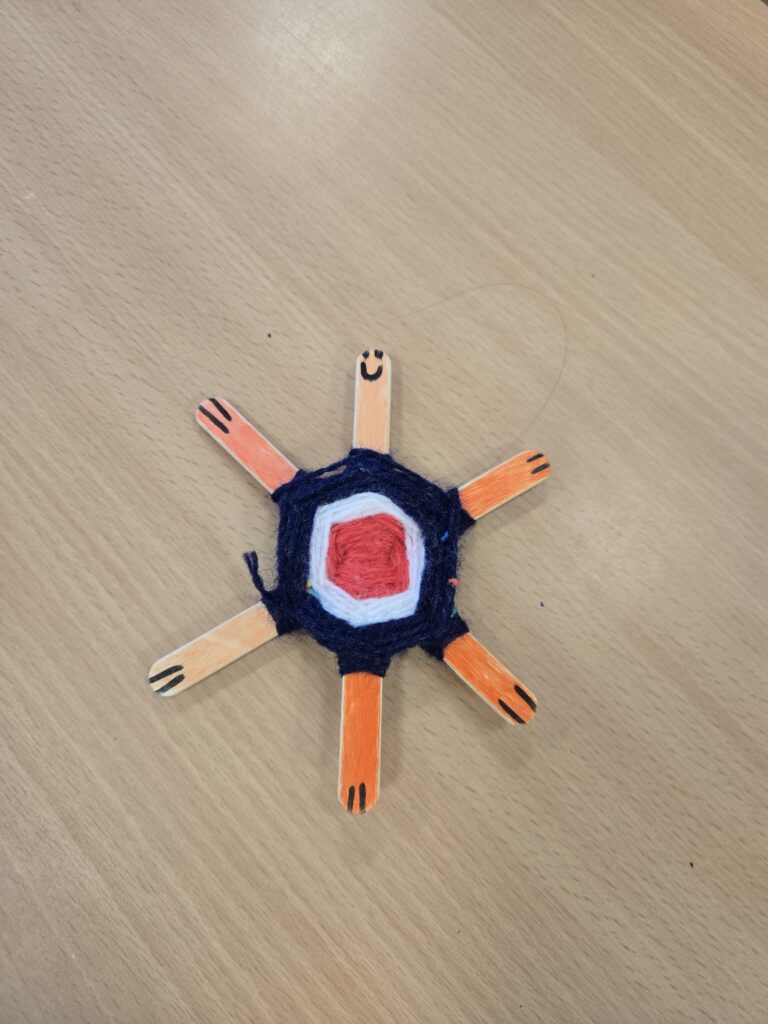
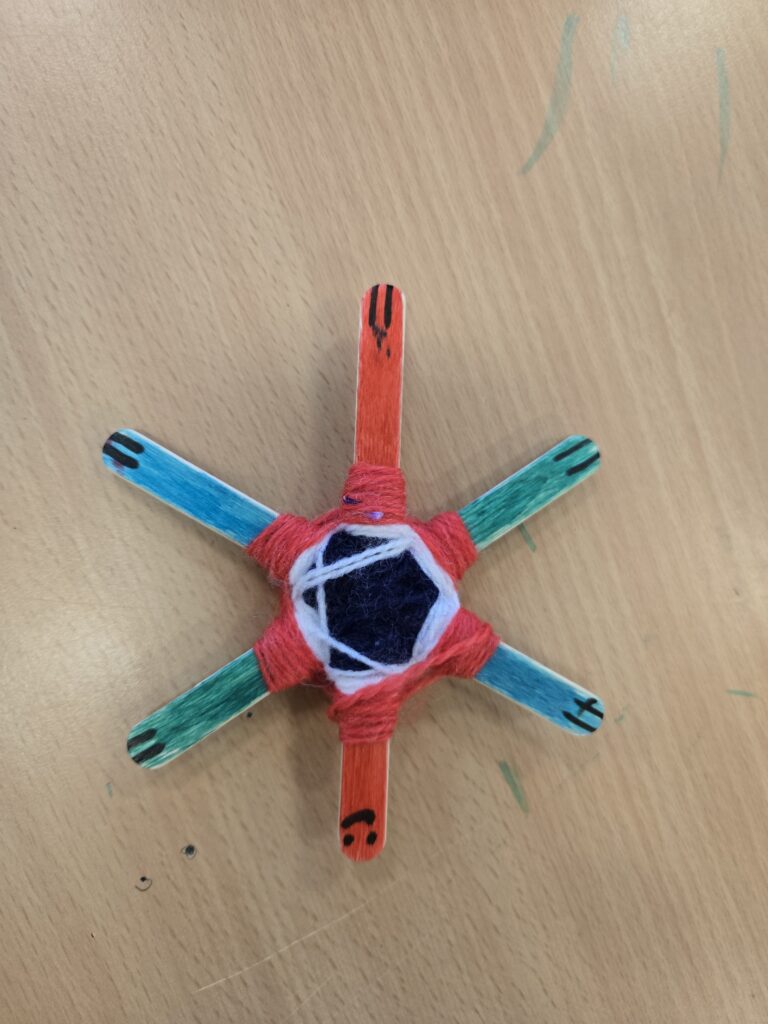
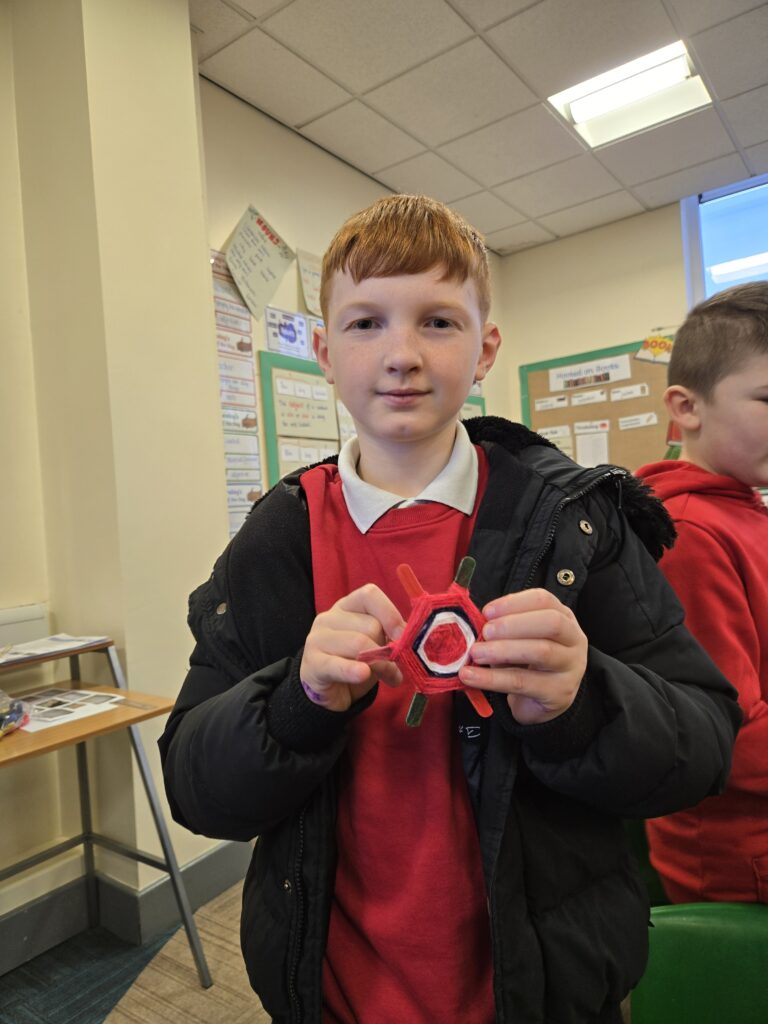
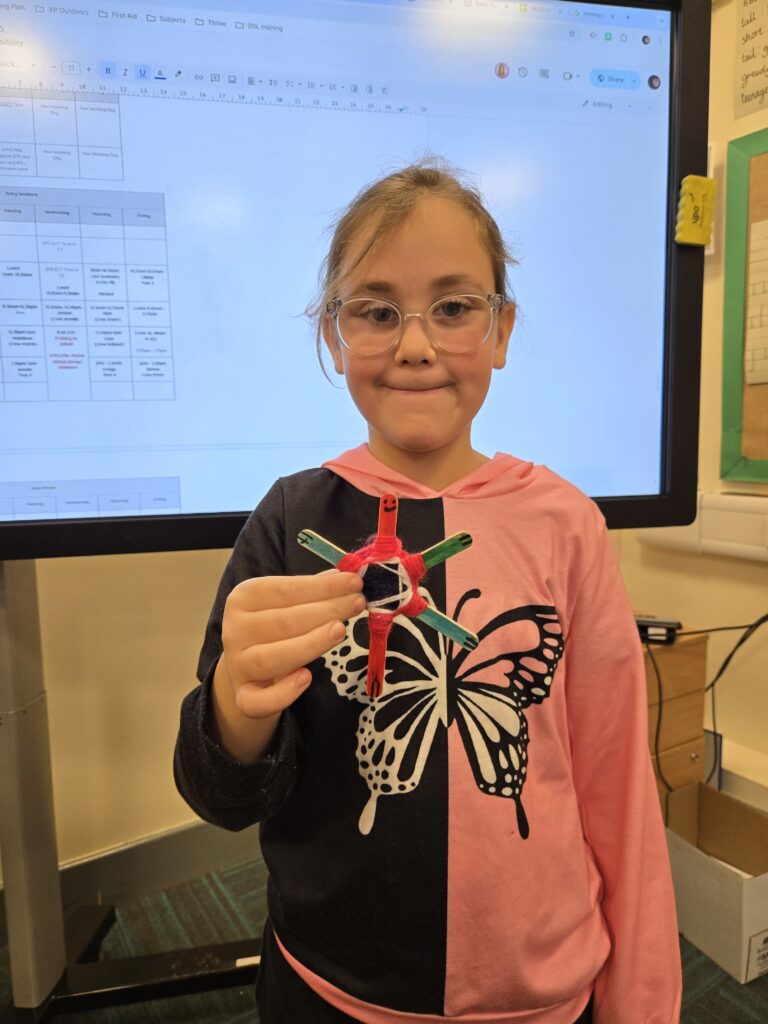

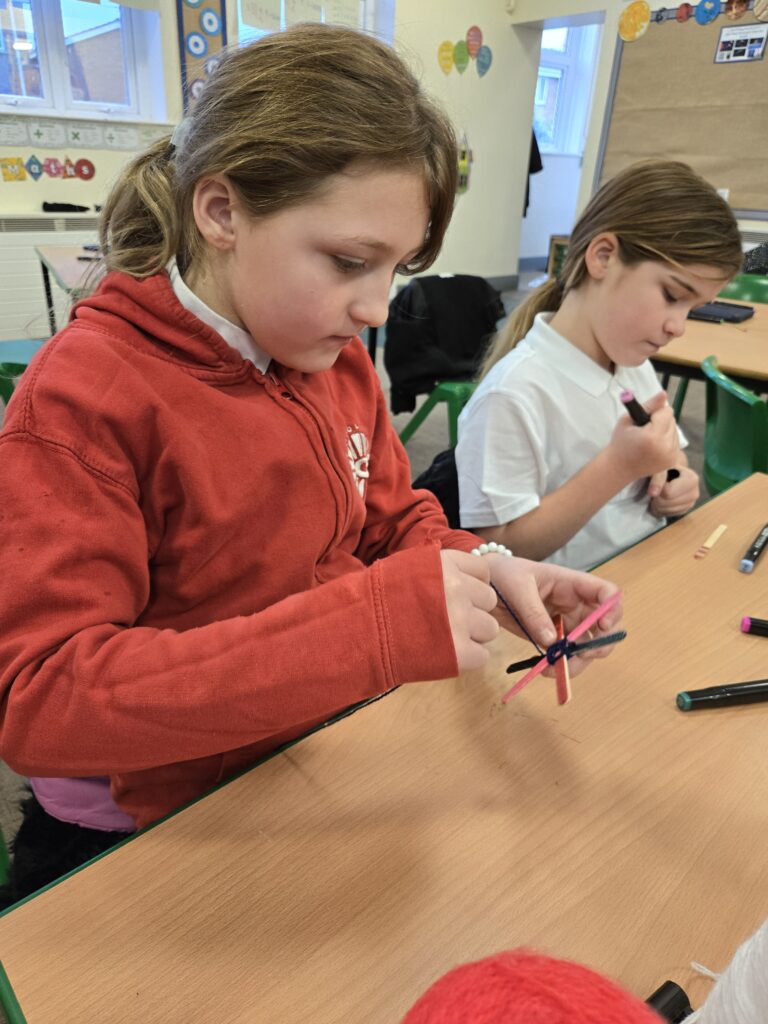
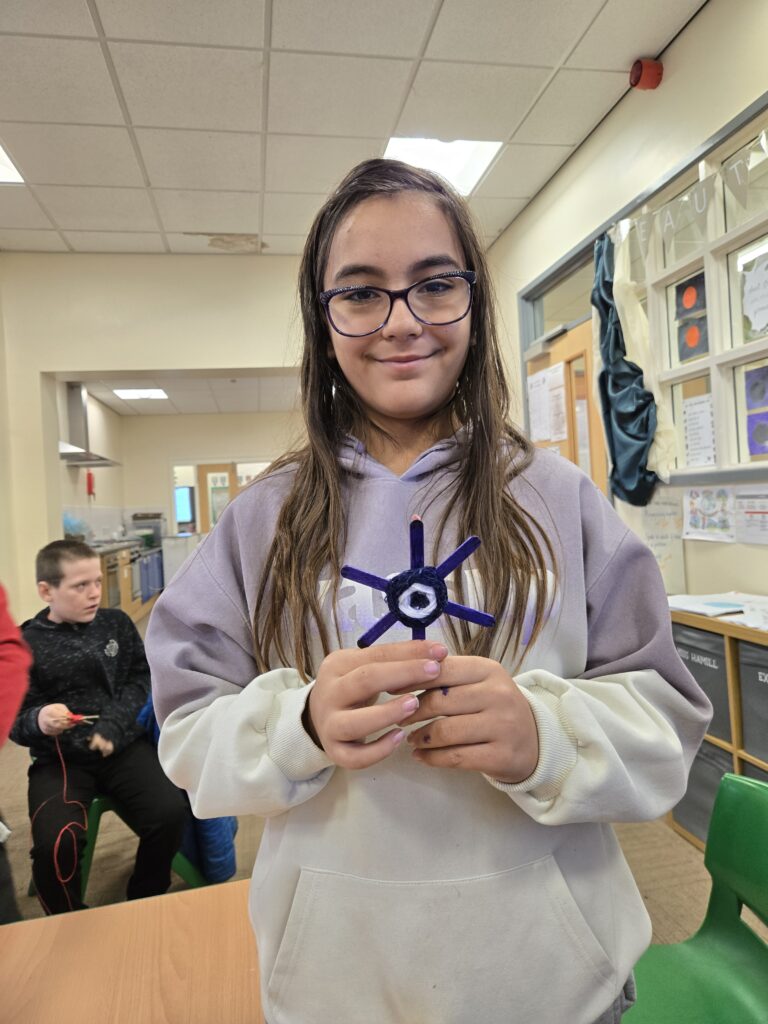
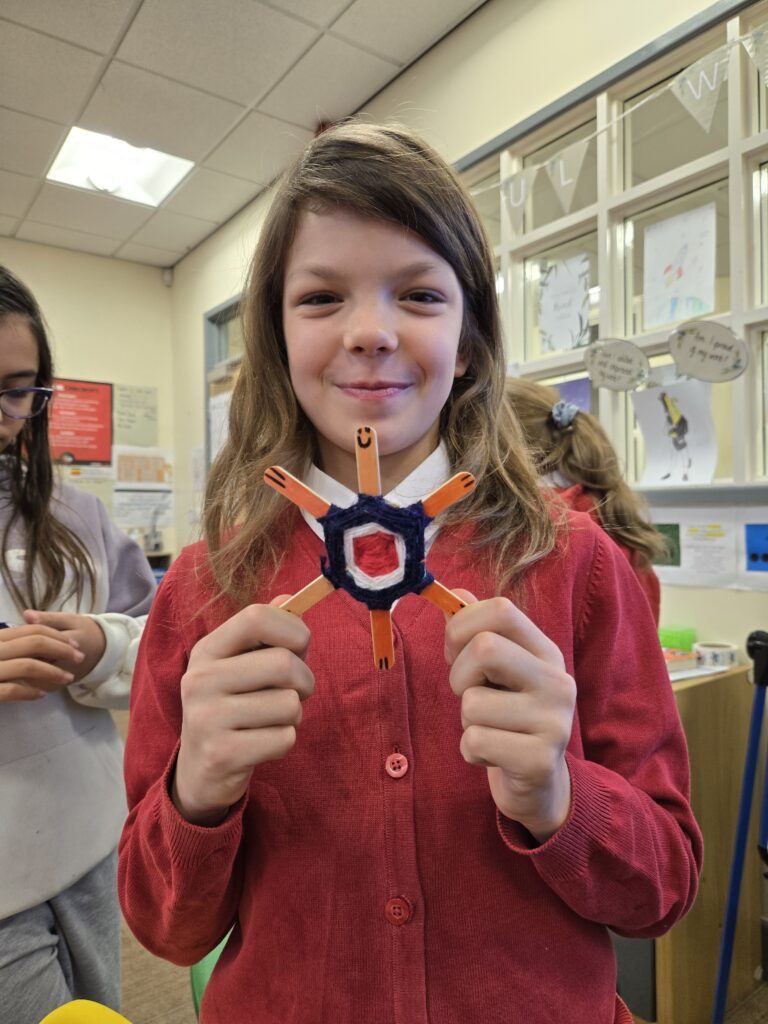
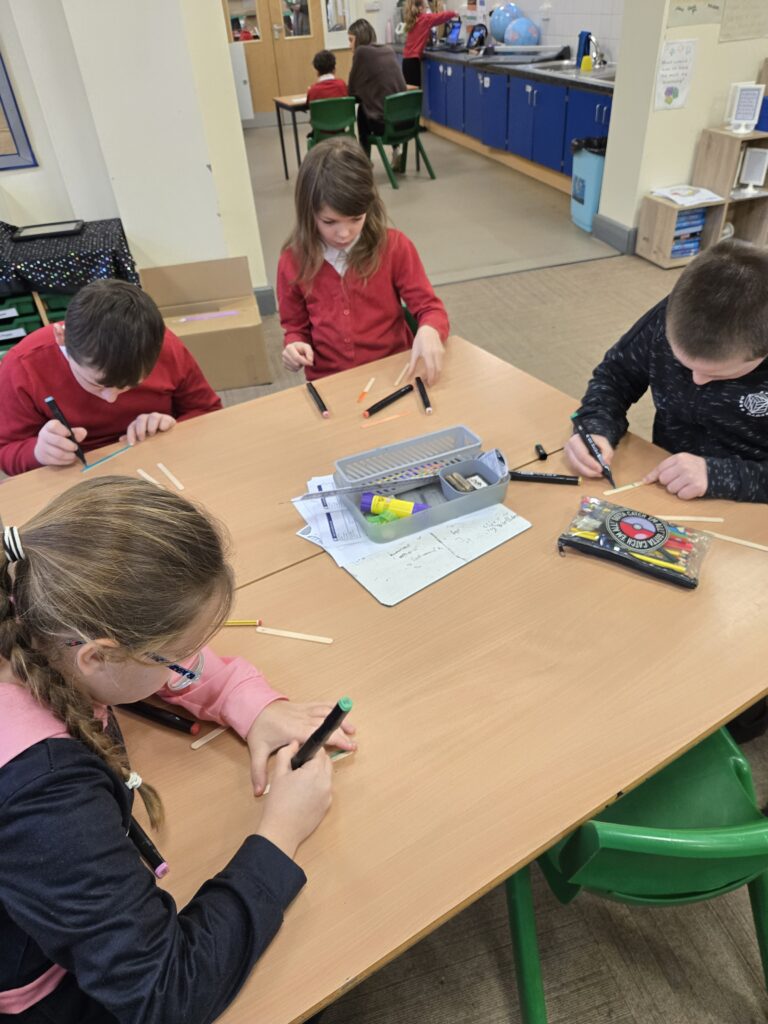
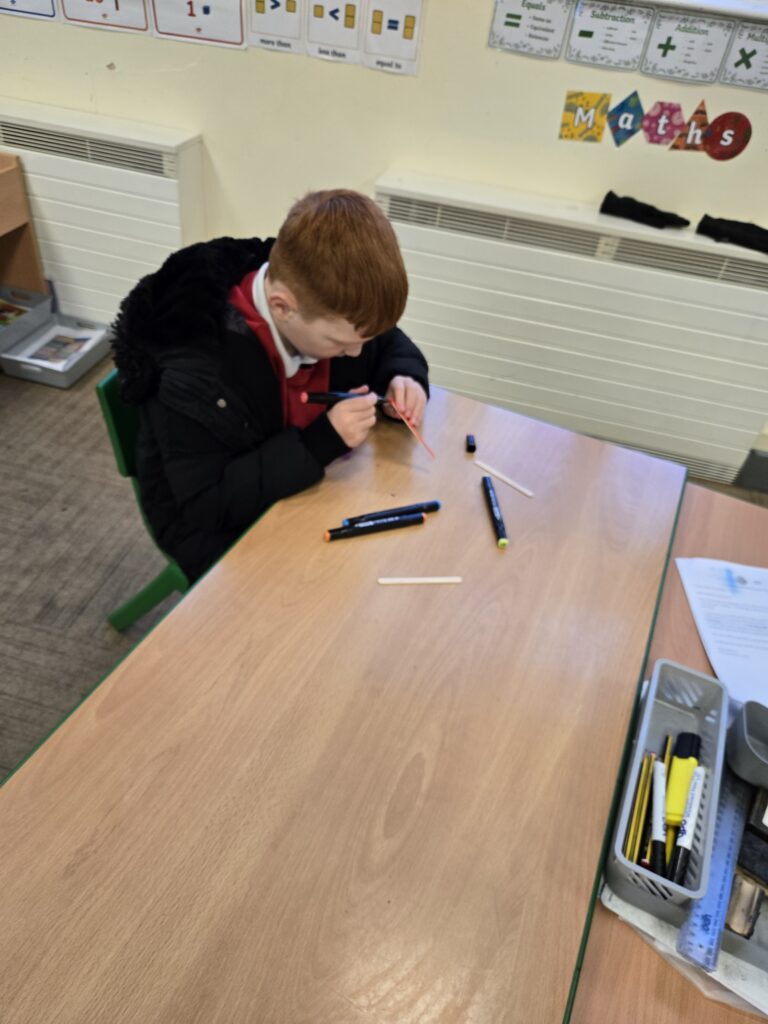
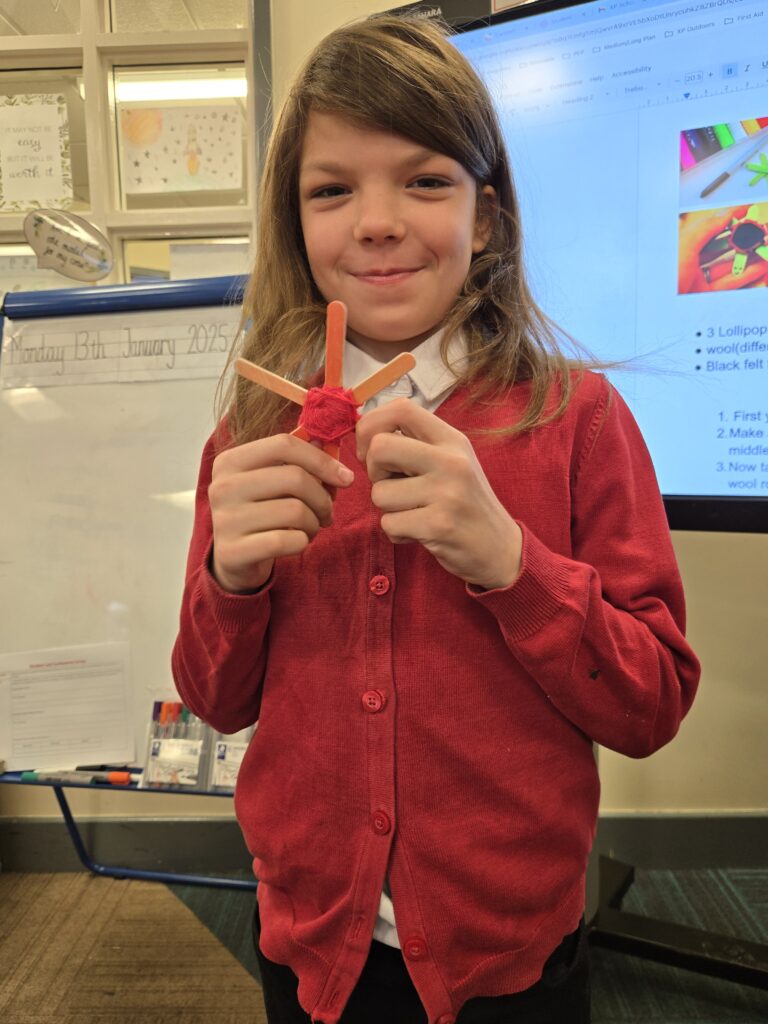
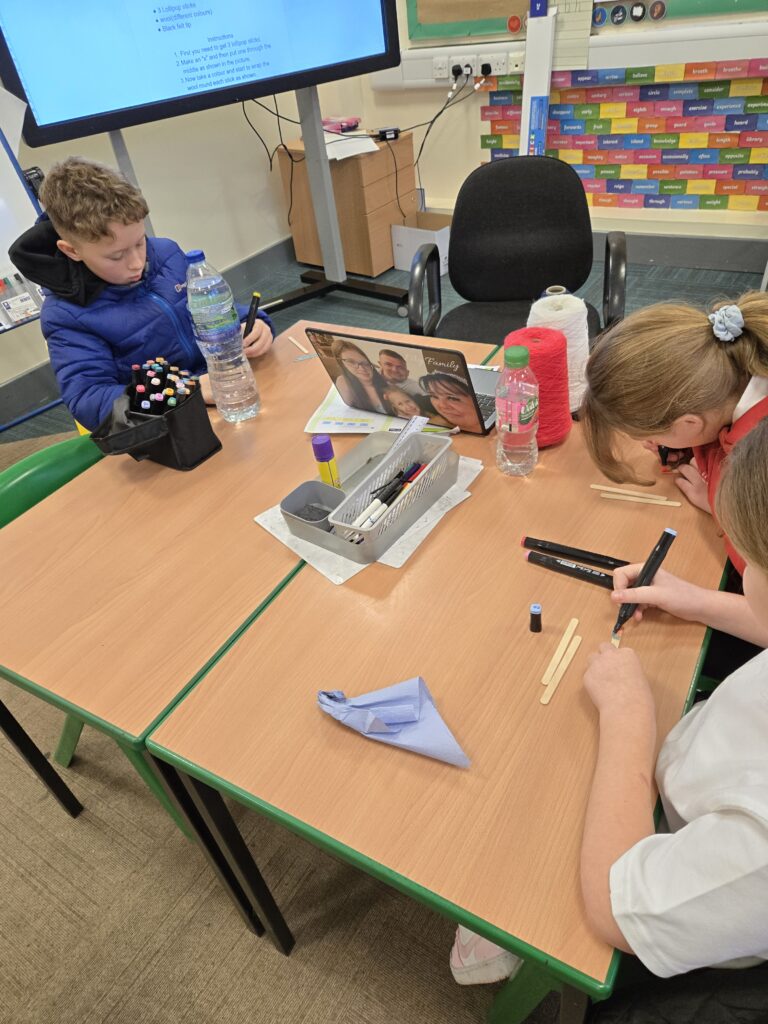
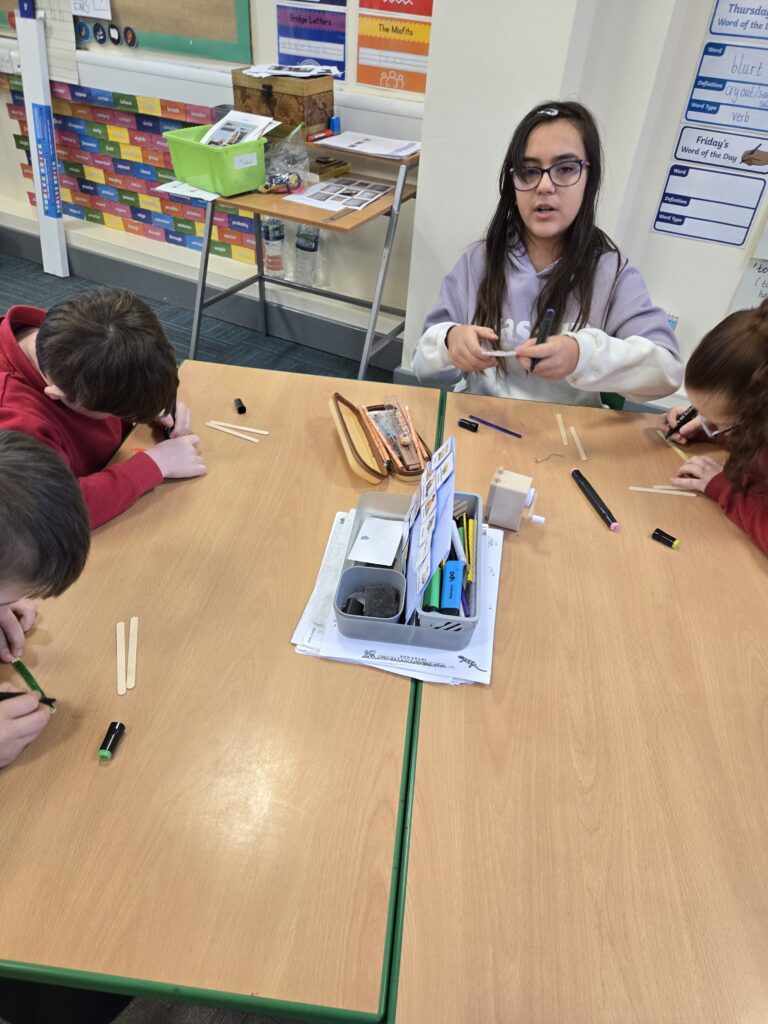
After learning about the organs involved with digesting out food, we learned about how each organ plays a vital role in the digestion of food. We discovered the journey that food takes and what happens to it in each stage. To help with this we were able to complete an experiment which shows what happens to food. This did get a little messy but we had fun and really helped our understanding.
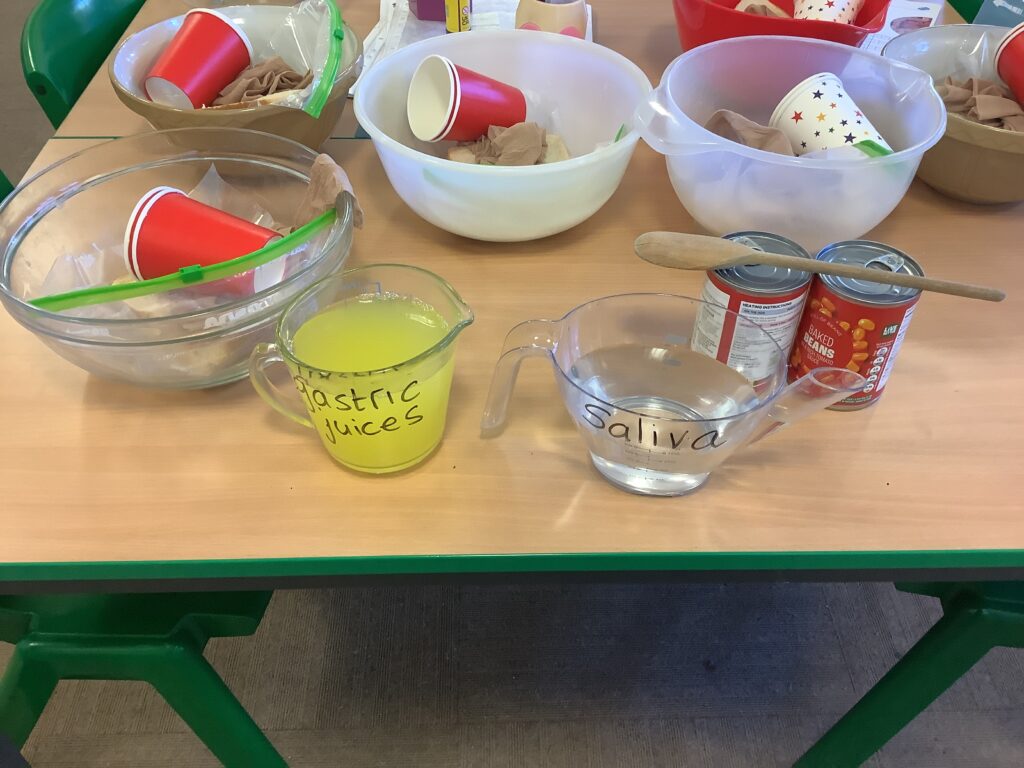
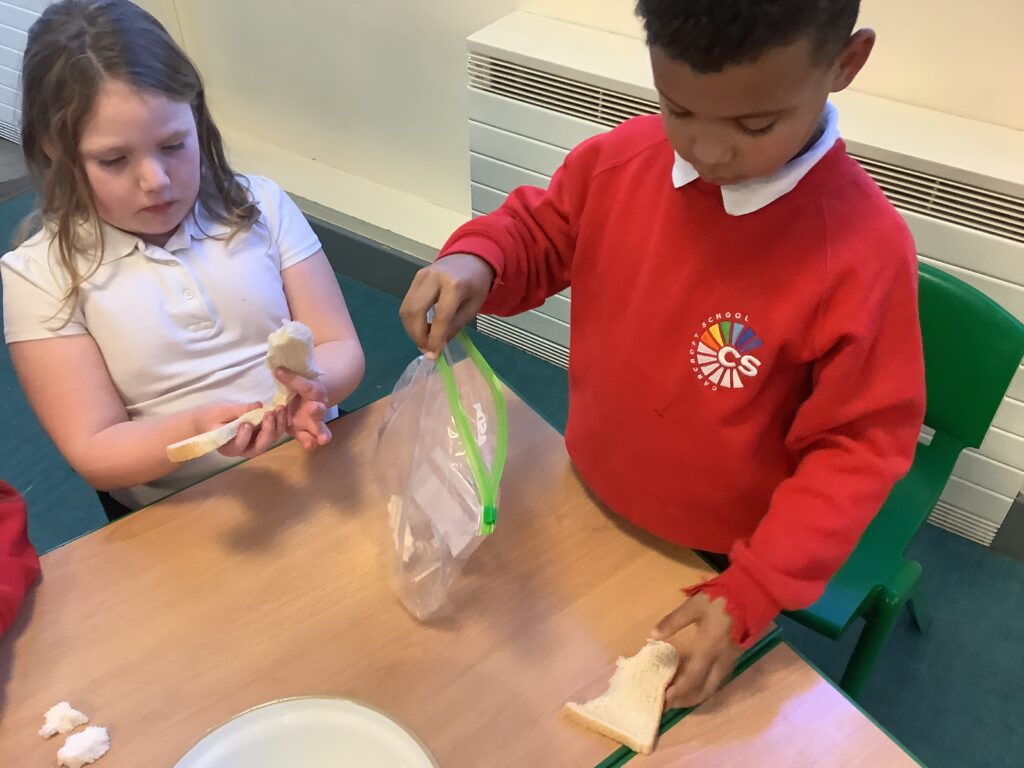
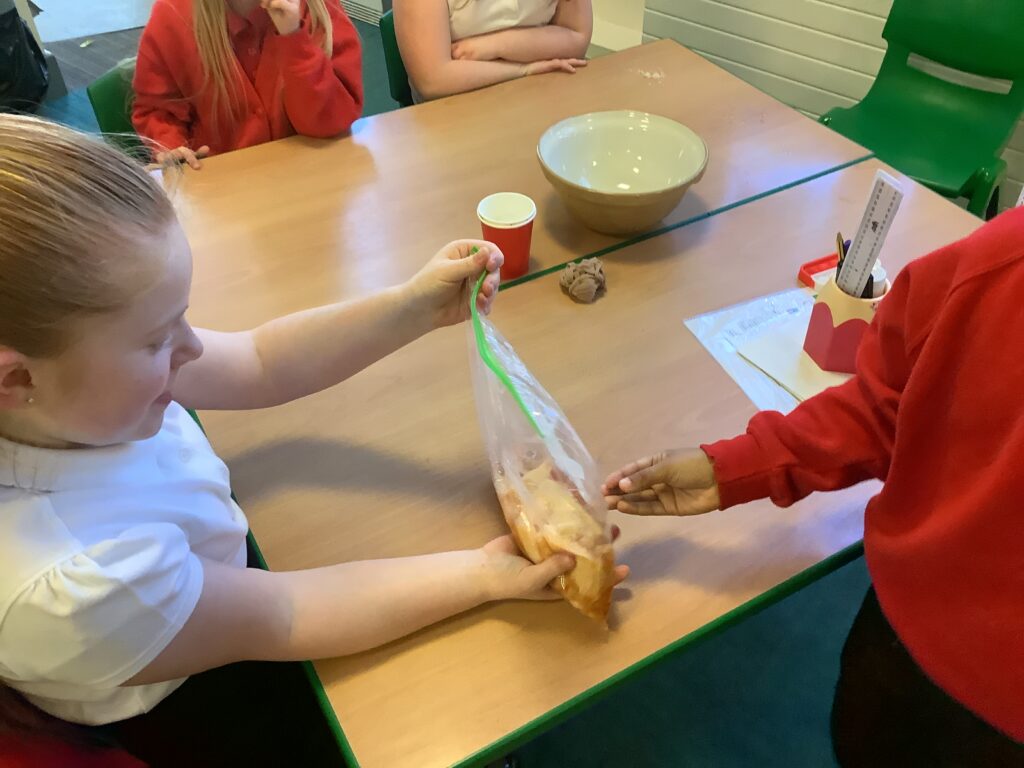
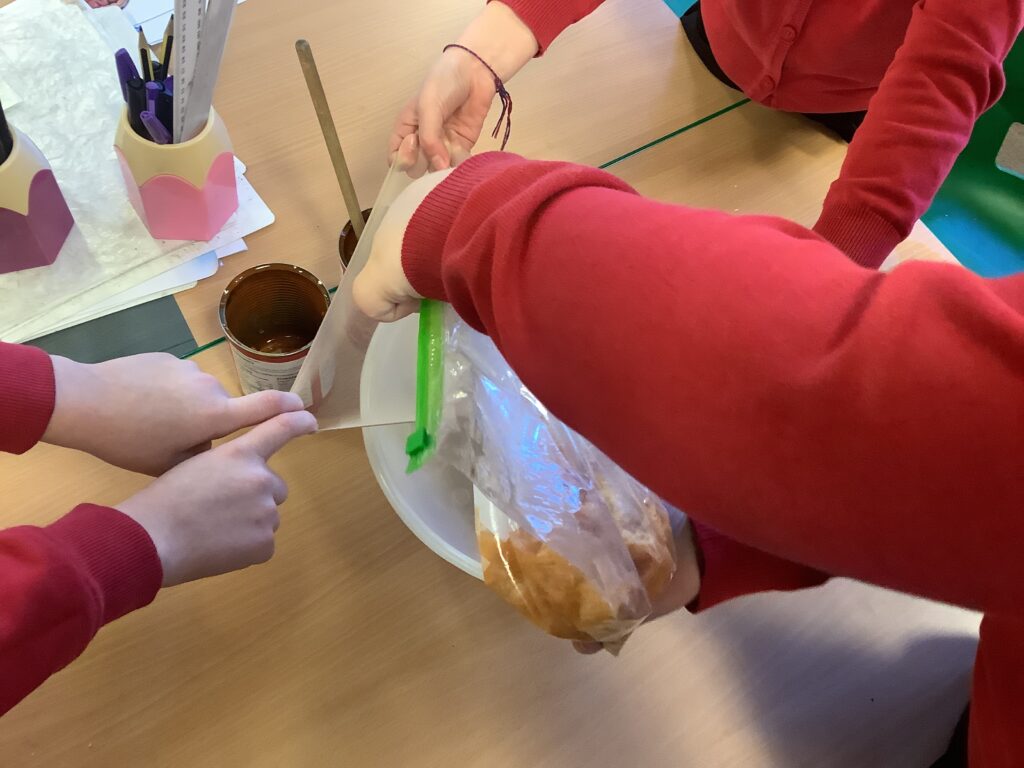
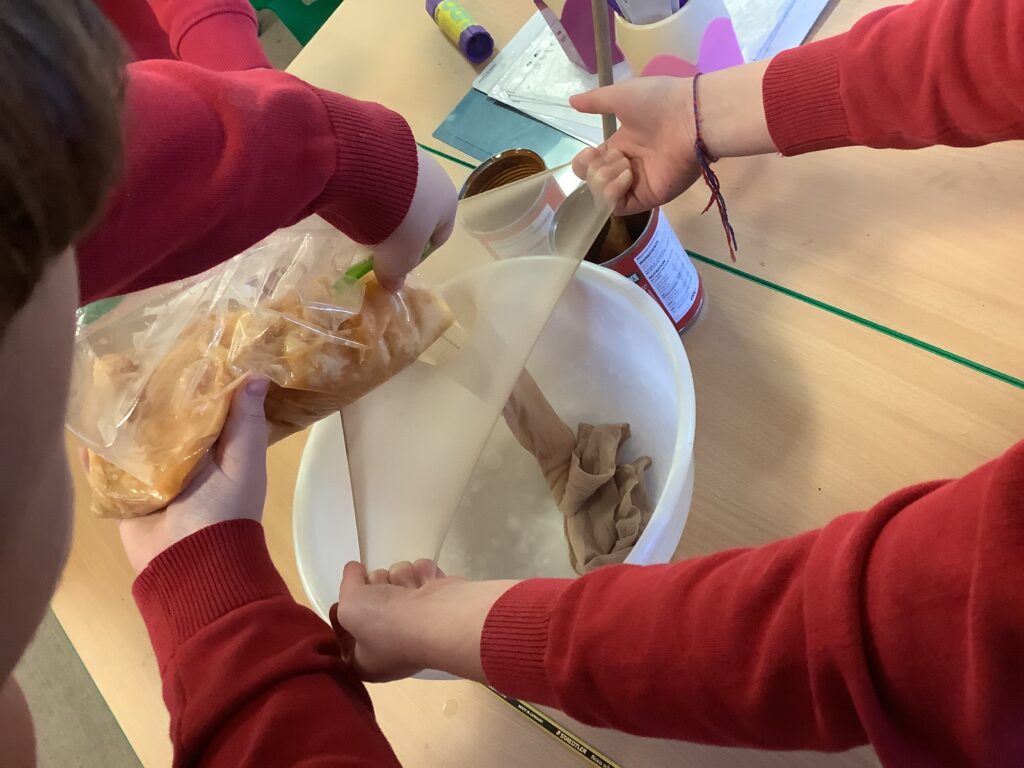
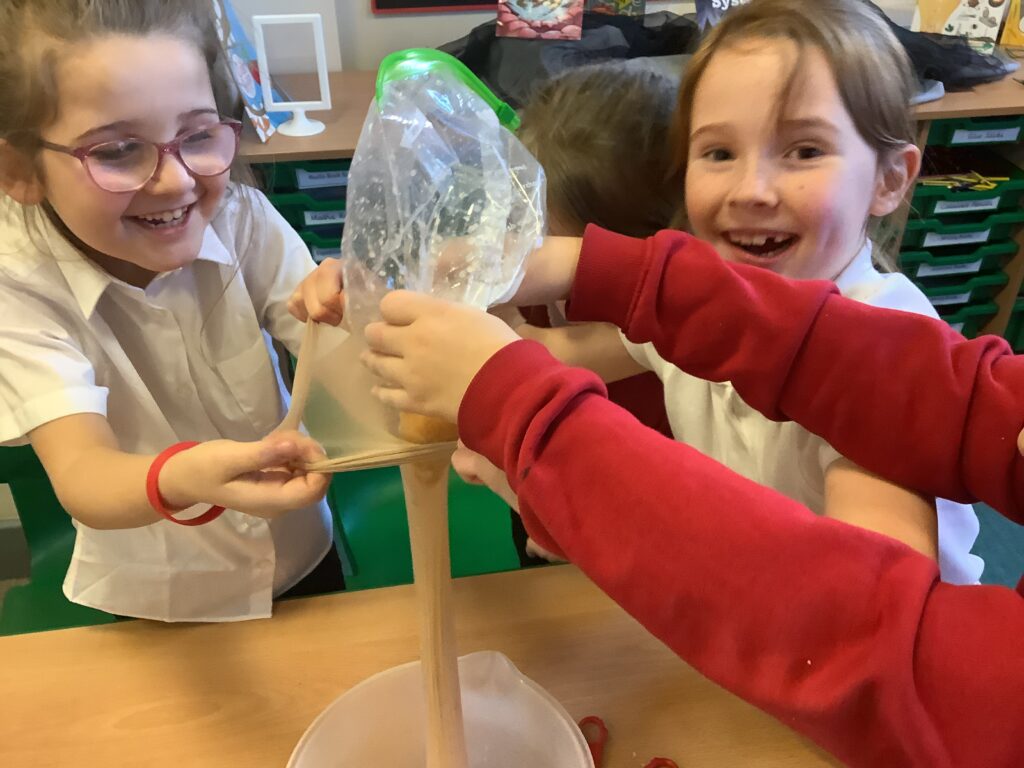
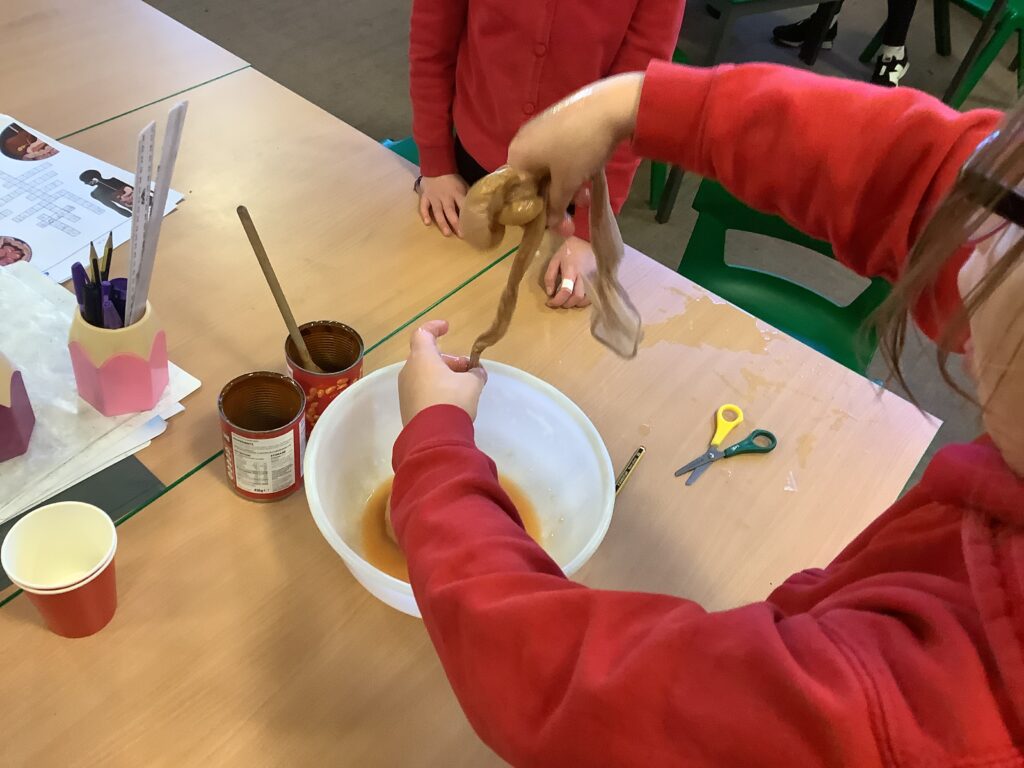
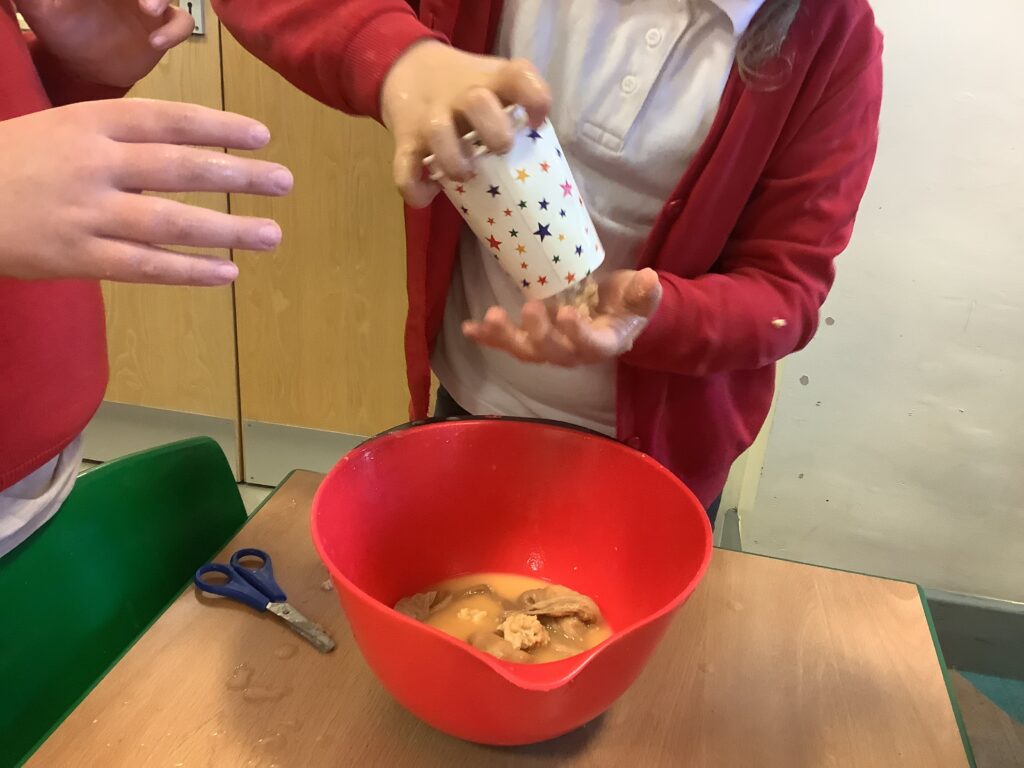
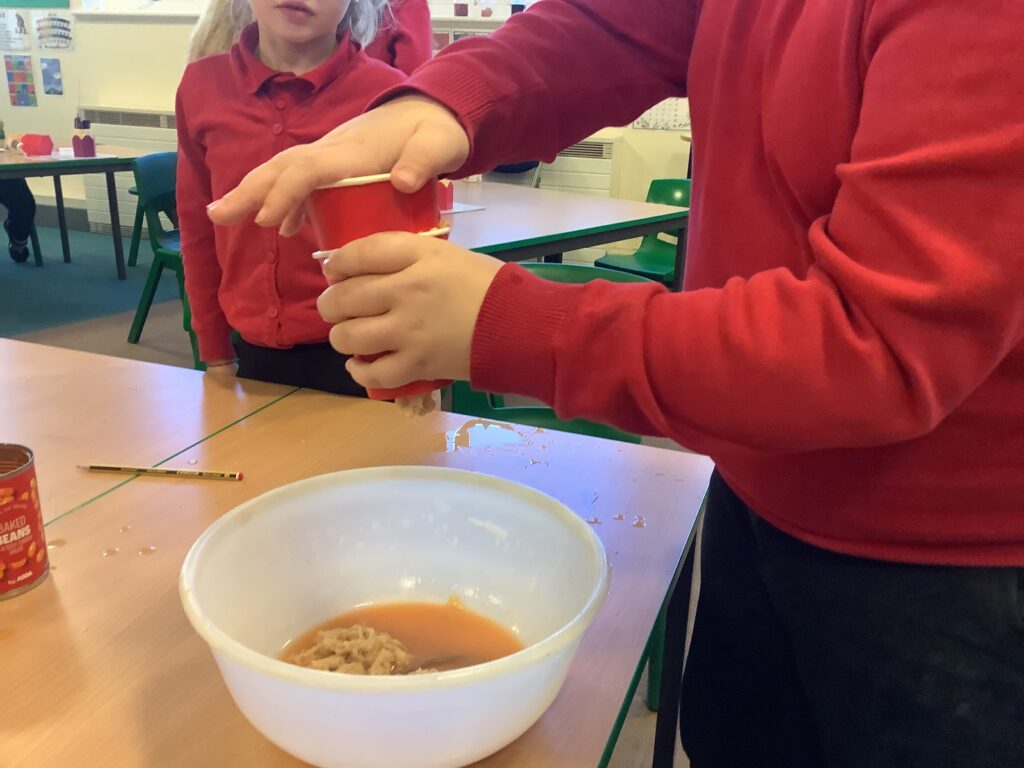
Before learning about the digestive system, we built a human. Children worked together to cut out the bones and organs before deciding where they thought they should go. We were pretty good at deciding where the bones should go but needed a little support with the organs. We then narrowed it down to the organs that are involved with digesting our food.
